Delicious food swaps to help make healthy eating easier
Whether you're watching your cholesterol or just looking to make healthier choices, simple food swaps can make all the difference

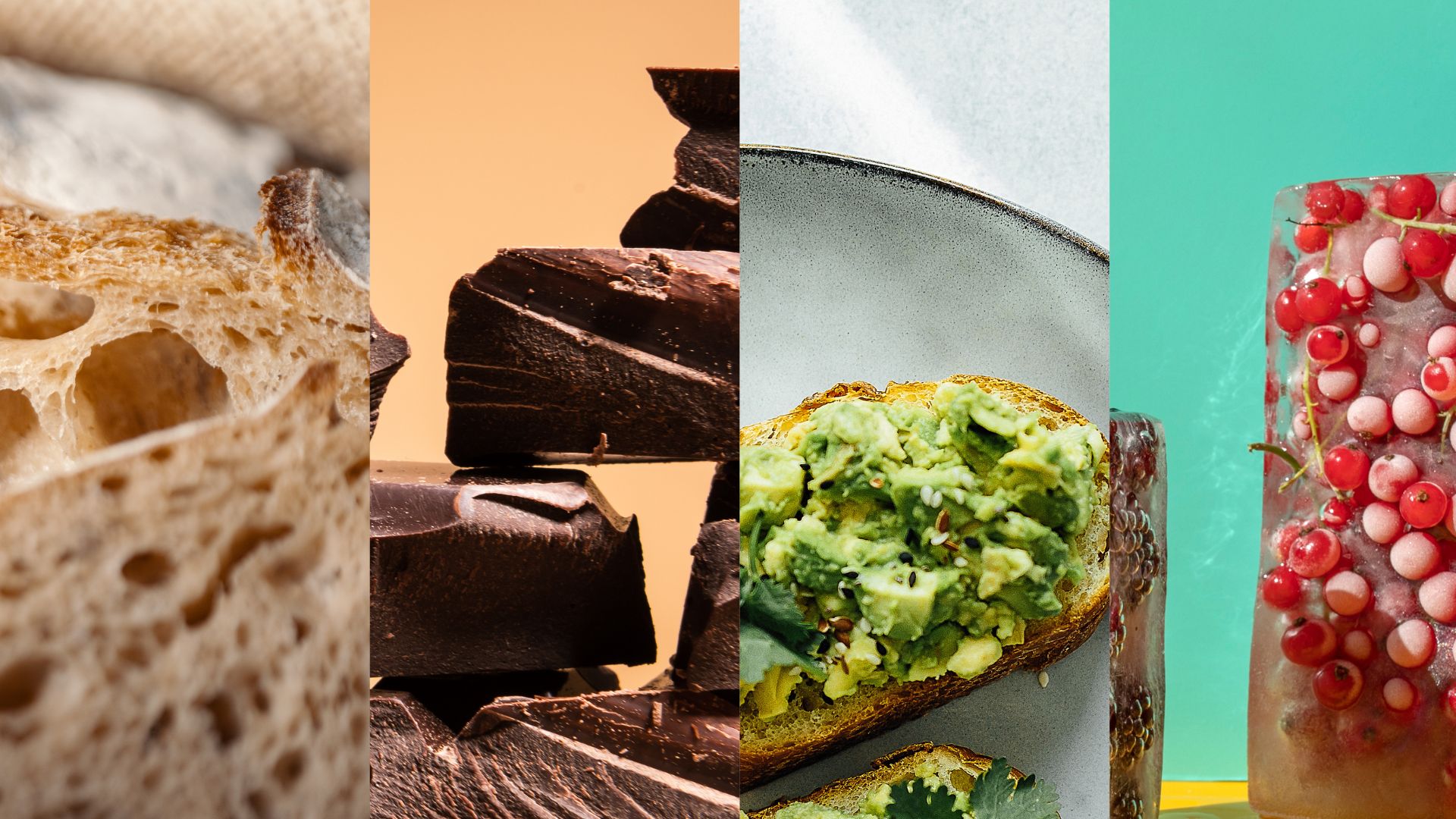
Sign up to our free daily email for the latest royal and entertainment news, interesting opinion, expert advice on styling and beauty trends, and no-nonsense guides to the health and wellness questions you want answered.
You are now subscribed
Your newsletter sign-up was successful
Want to add more newsletters?

Daily (Mon-Sun)
woman&home Daily
Get all the latest beauty, fashion, home, health and wellbeing advice and trends, plus all the latest celebrity news and more.

Monthly
woman&home Royal Report
Get all the latest news from the Palace, including in-depth analysis, the best in royal fashion, and upcoming events from our royal experts.

Monthly
woman&home Book Club
Foster your love of reading with our all-new online book club, filled with editor picks, author insights and much more.

Monthly
woman&home Cosmic Report
Astrologer Kirsty Gallagher explores key astrological transits and themes, meditations, practices and crystals to help navigate the weeks ahead.
When it comes to making healthier choices, it doesn't have to be big changes - swapping butter for avocado dials up the nutrients and cuts down on the saturated fat, but still tastes great.
Simple swaps like this can help boost the nutrients in our diets with little effort, reducing the amount of calories, saturated fat, and ultra-processed ingredients we consume.
It's important to still eat what you love and swapping out ingredients you don't think twice about leaves more room for those. Here are the easiest ones to switch.
Wholegrain bread, not white bread
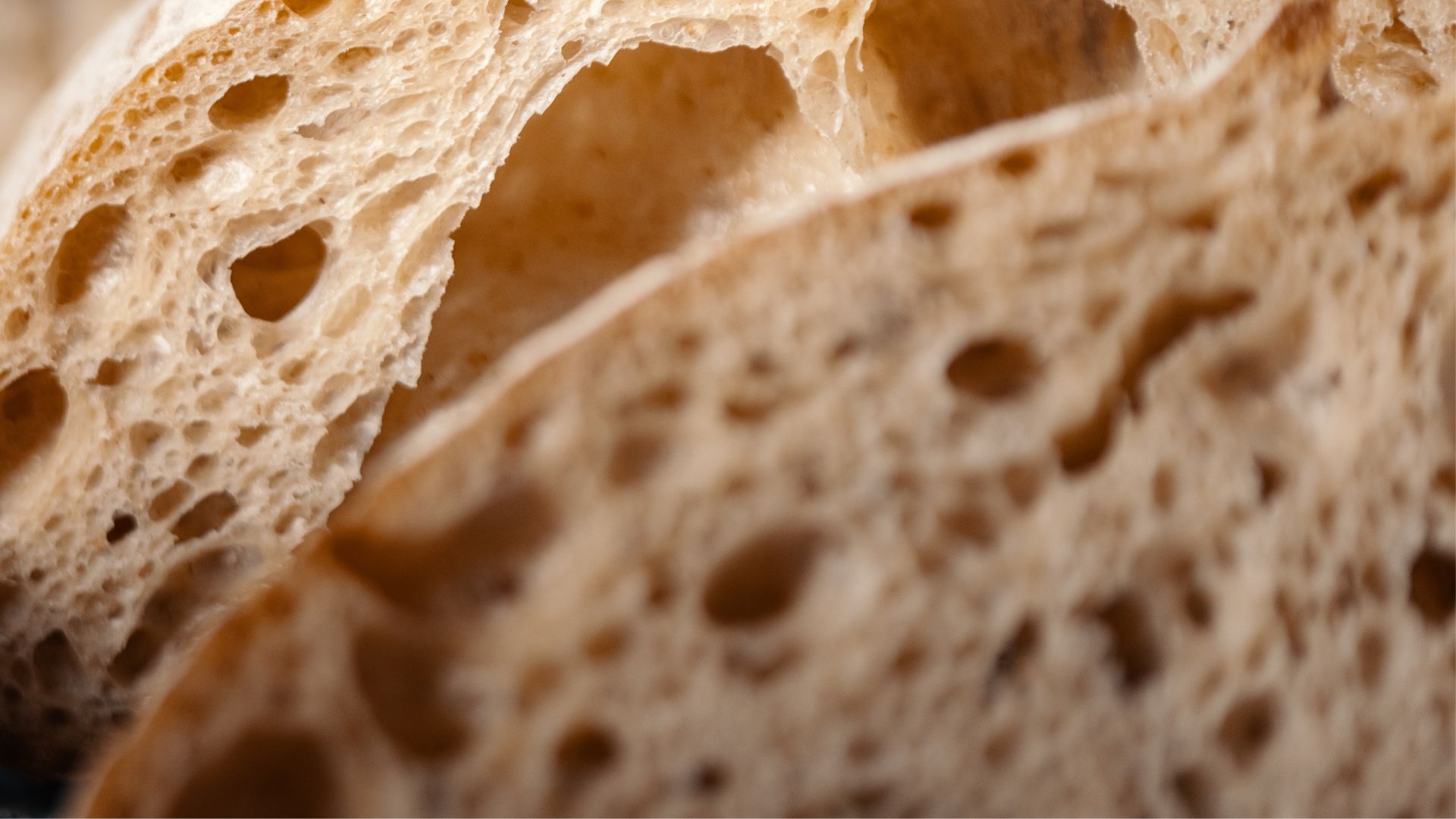
A simple swap for toast or sandwiches is wholegrain bread instead of white. Wholegrain bread contains the entire kernel of wheat, so it's naturally richer in fibre, vitamins, and minerals. Together, these support digestive health and promote fullness.
If you're not keen on making the big switch, look out for white breads that have been fortified with the vitamins and minerals usually missing from bread.
Sweet potato, not white potato
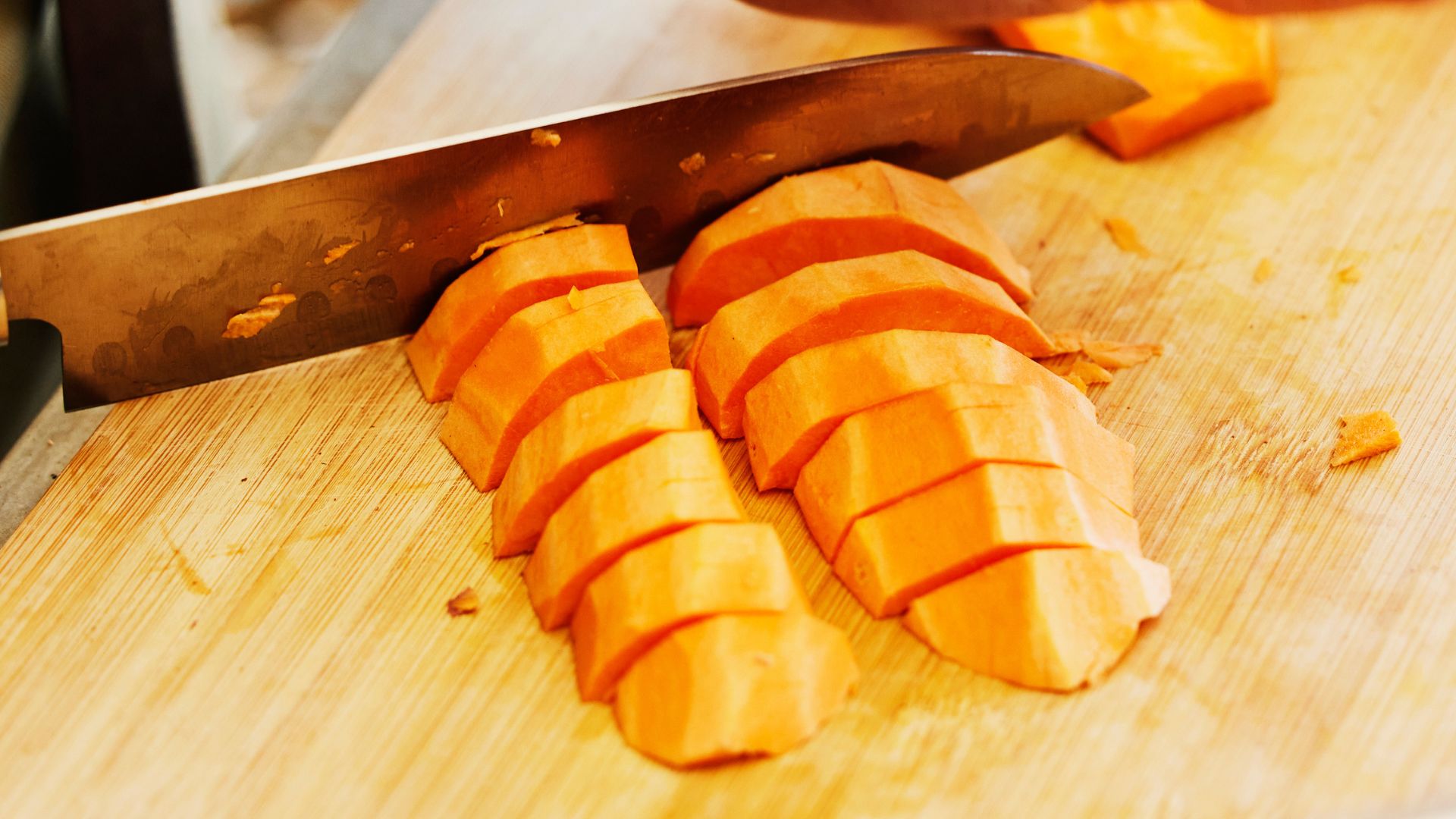
While regular white potatoes are a great source of potassium and vitamin C, sweet potatoes are richer in vitamin A and fibre. They are also lower in calories.
One instance where white potatoes will be better than the sweet variety, however, is after a workout. When white potatoes are cooked and cooled, their accessible starch turns into resistant starch, which is a good source of slow-release energy.
Sign up to our free daily email for the latest royal and entertainment news, interesting opinion, expert advice on styling and beauty trends, and no-nonsense guides to the health and wellness questions you want answered.
Lentil pasta, not white pasta
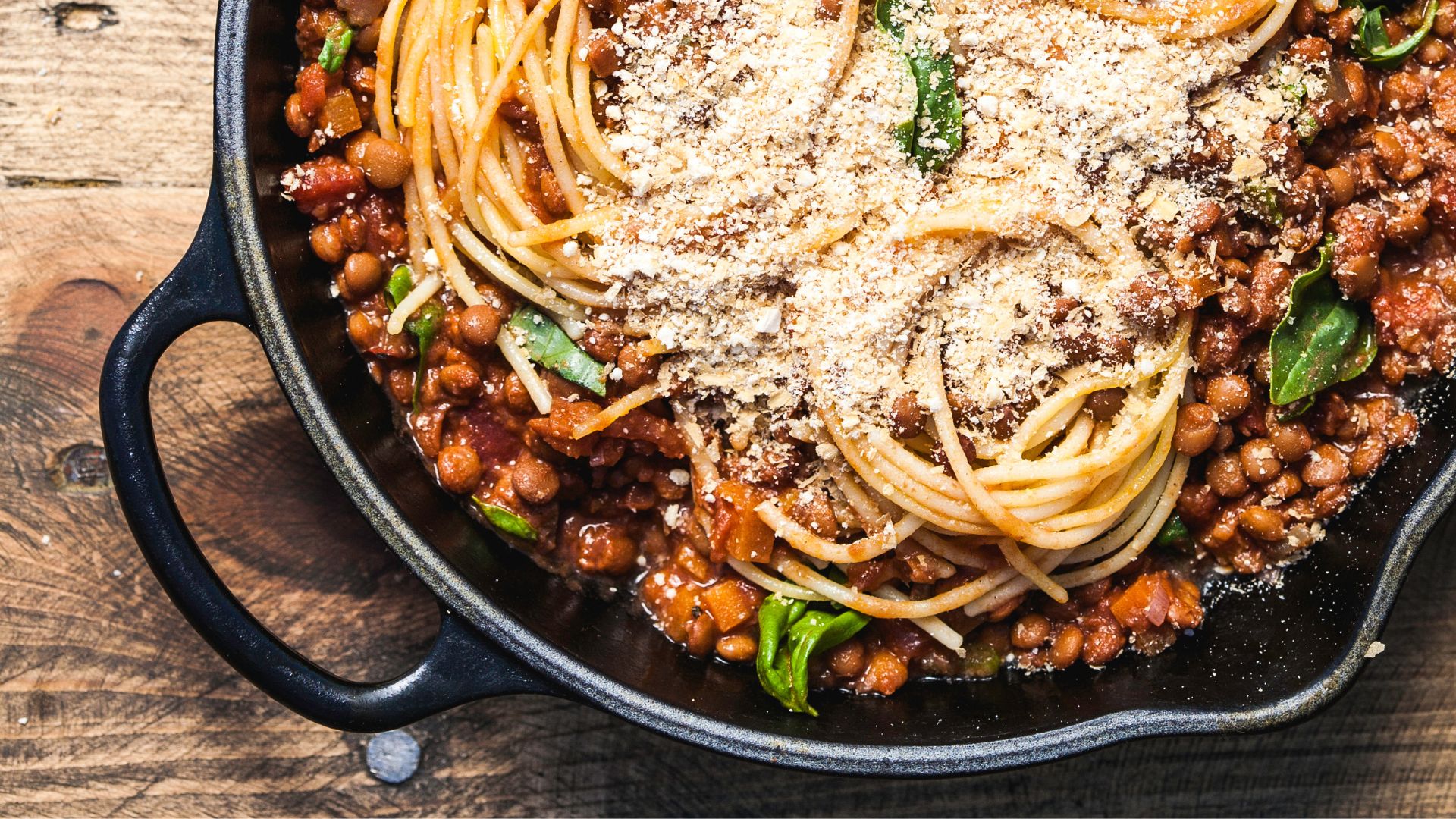
Cooked and cooled white pasta is rich in resistant starch, just like white potatoes, making it a great option for boosting energy levels after a workout. However, for your regular bolognese at dinner times, it's worth trying lentil pasta.
Lentil pasta has more fibre, micronutrients like folate and iron, and more protein thanks to the legumes it's made from. It's also a good gluten-free option.
Rolled oats, not ultra-processed packets
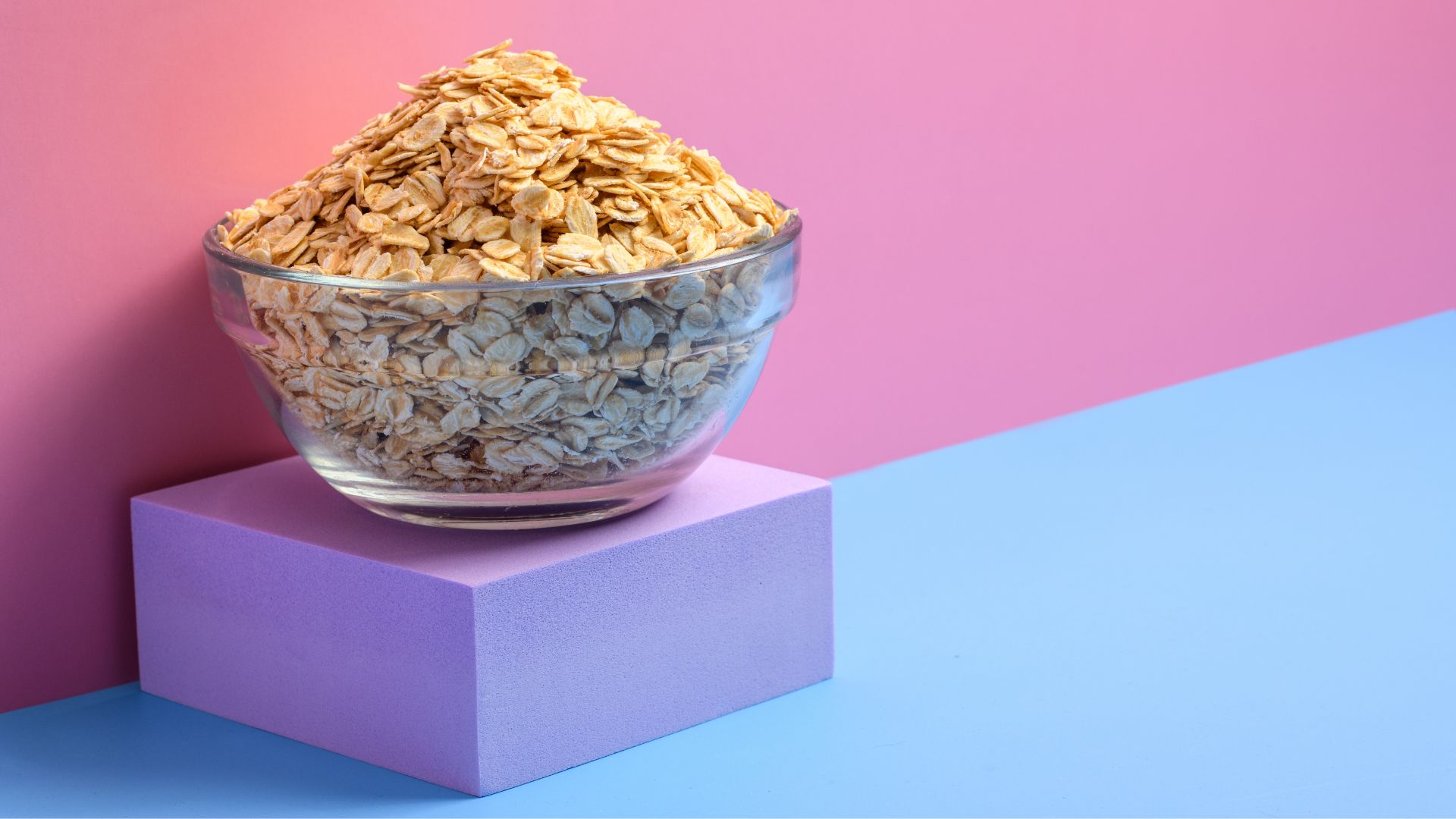
If porridge is your go-to in the mornings, switching out pre-packaged porridge oats and toppings for raw oats and adding your own toppings can make all the difference.
Rolled oats (also called 'raw' oats sometimes) are completely unprocessed and can be eaten without cooking them first. Instant oats are packaged with artificial flavours and ingredients to improve taste and to create a whole meal, which is quick and convenient, but not the best if you're having porridge every day.
Popcorn, not crisps
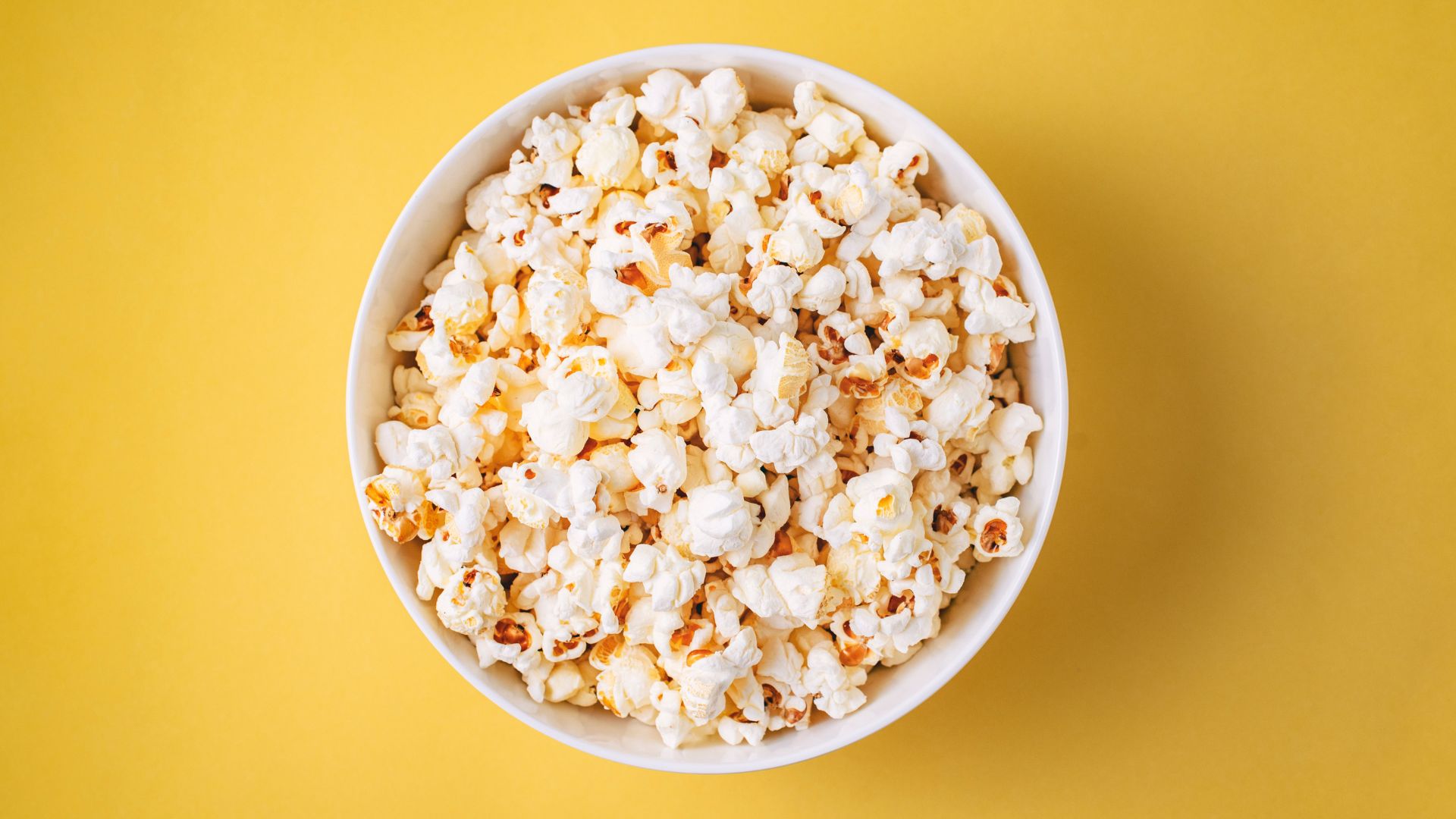
Popcorn is a whole grain, rich in fibre, and generally lower in calories than regular potato crisps - especially when air-popped or made from scratch at home.
Crisps made from fried potatoes come with very little nutritional value, but so can pre-packaged popcorn with additives and artificial flavours, so it's not always the healthiest way forward. Choose your popcorn carefully.
Dates, not sweets
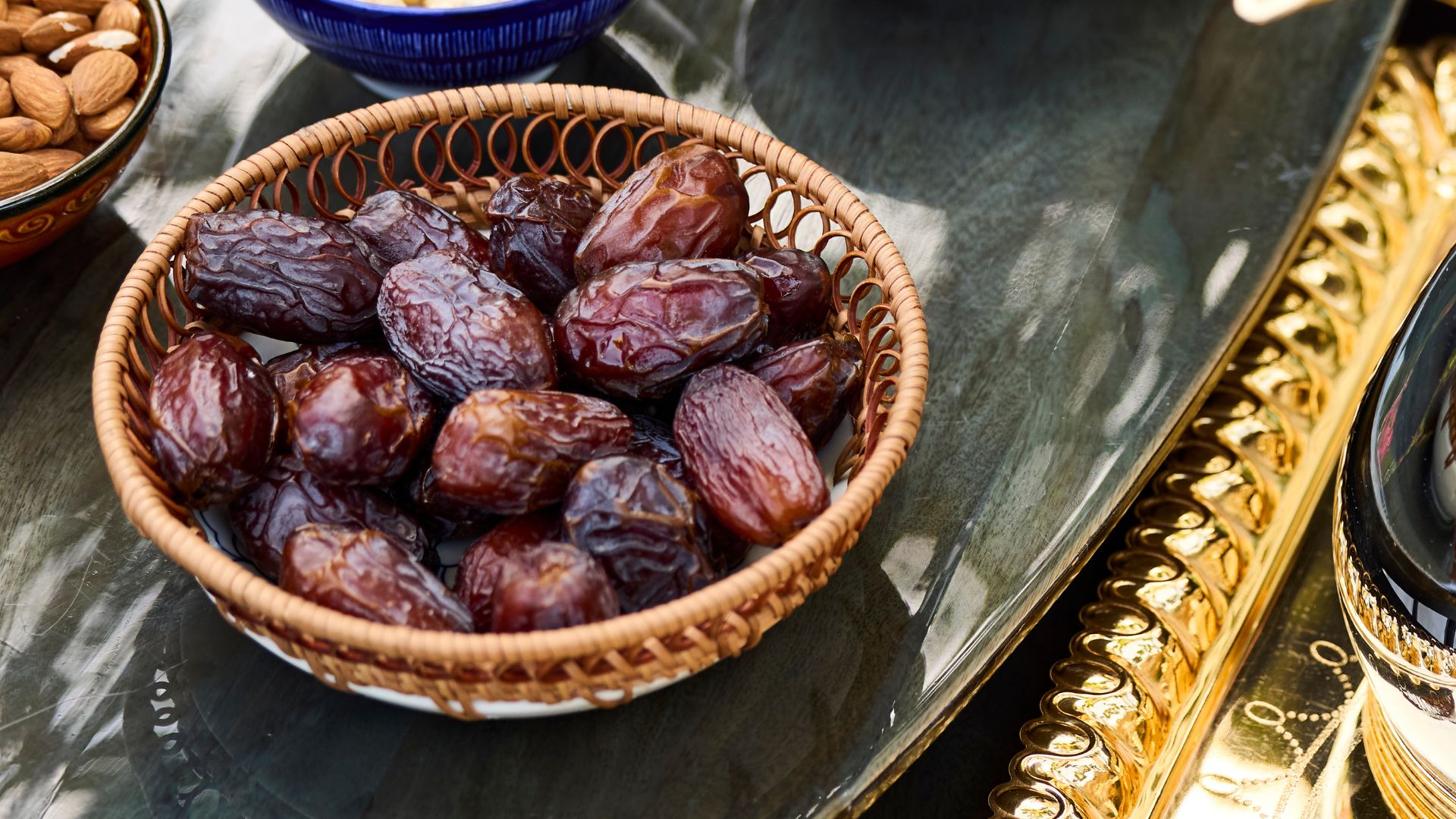
Variety is the spice of life and it's important to enjoy the food you want. However, if you're looking to cut back on the amount of sweets you eat, dates can be a good alternative for snacking.
Dates are rich in fibre, which slows the absorption of natural sugars and boosts feelings of fullness. They are also packed with antioxidants, vitamins, and minerals.
Dark chocolate, not milk chocolate
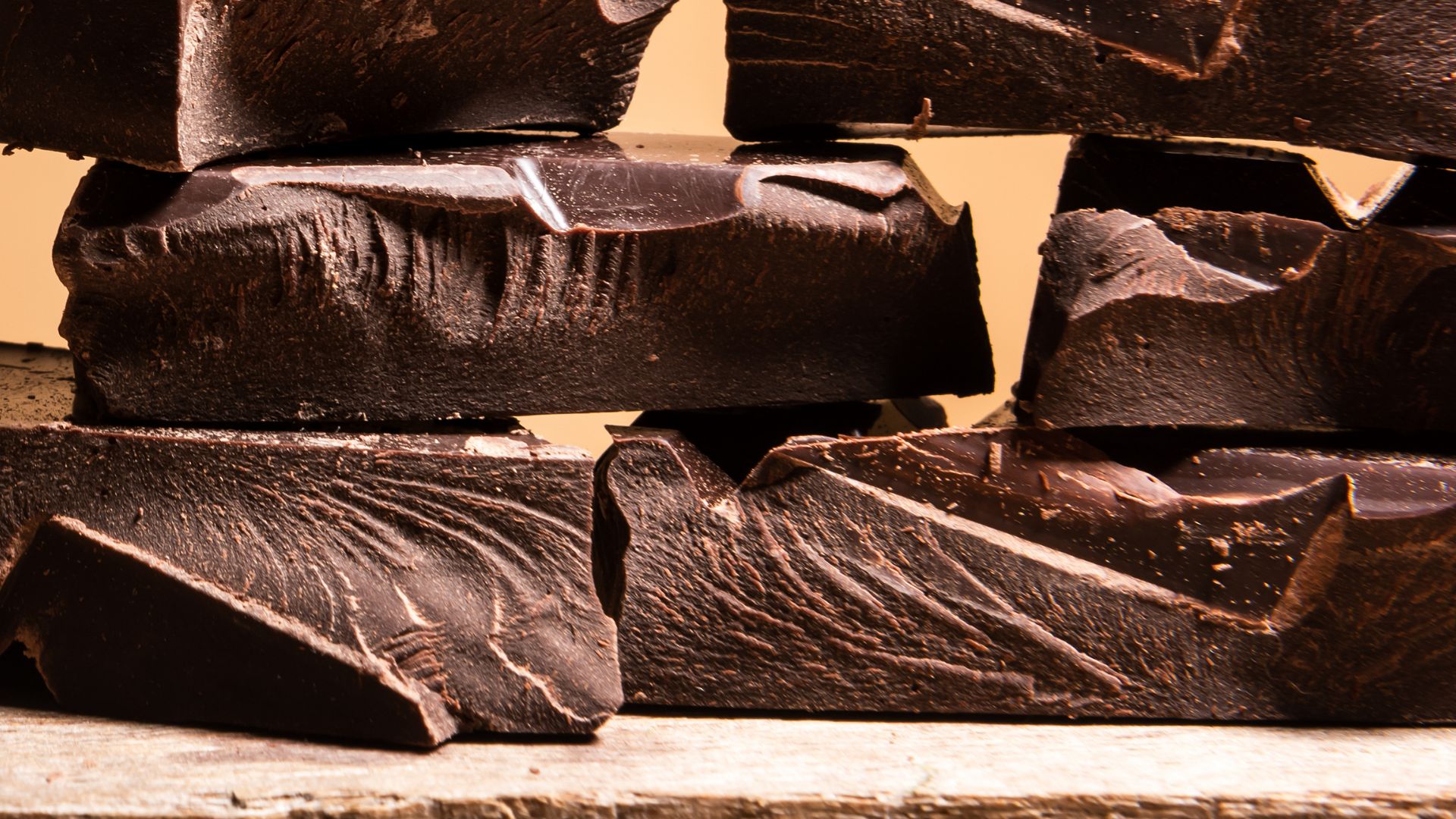
If you love chocolate but want to reduce the amount of sugar you eat, then dark chocolate can be a good alternative to milk chocolate. It contains a higher percentage of cocoa solids (at least 50%) and no milk, which gives it a richer flavour.
Dark chocolate is also rich in antioxidants and lower in sugar. However, moderation is still key as some brands add lots of sugar to dark chocolate (especially chocolate with less than 70% cocoa) to make the taste more appealing.
Cacao nibs, not chocolate chips
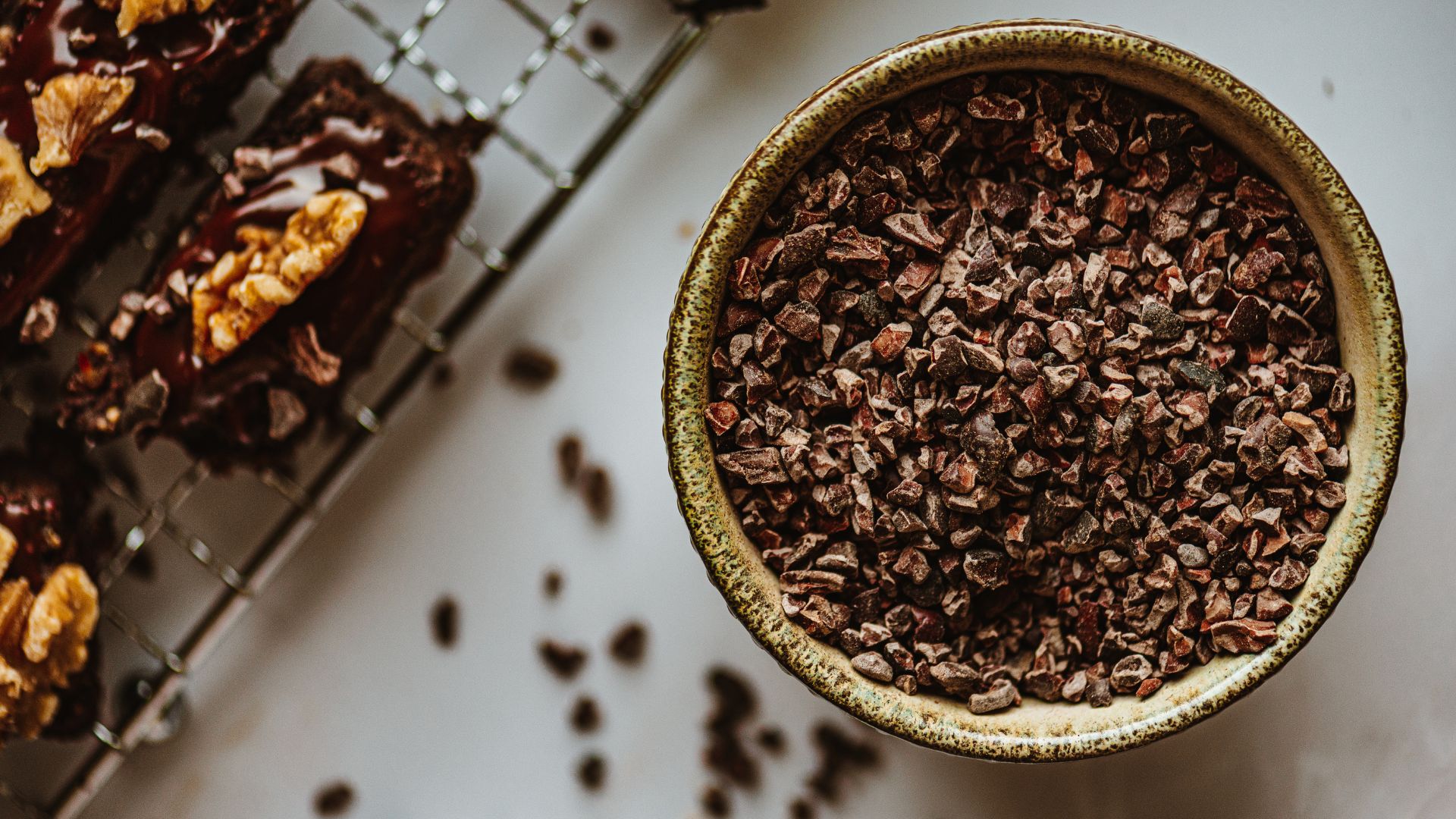
If you do a lot of baking, you'll know how easy it is to get carried away with chocolate chips. Cacao nibs can be the perfect alternative as they offer a crunchy, chewy texture with plenty of nutritional value and no additional sugar.
Although cacao nibs can be bitter in taste compared to chocolate chips, which are made from cacao solids with added butter, milk, and sugar.
Eggs, not bacon
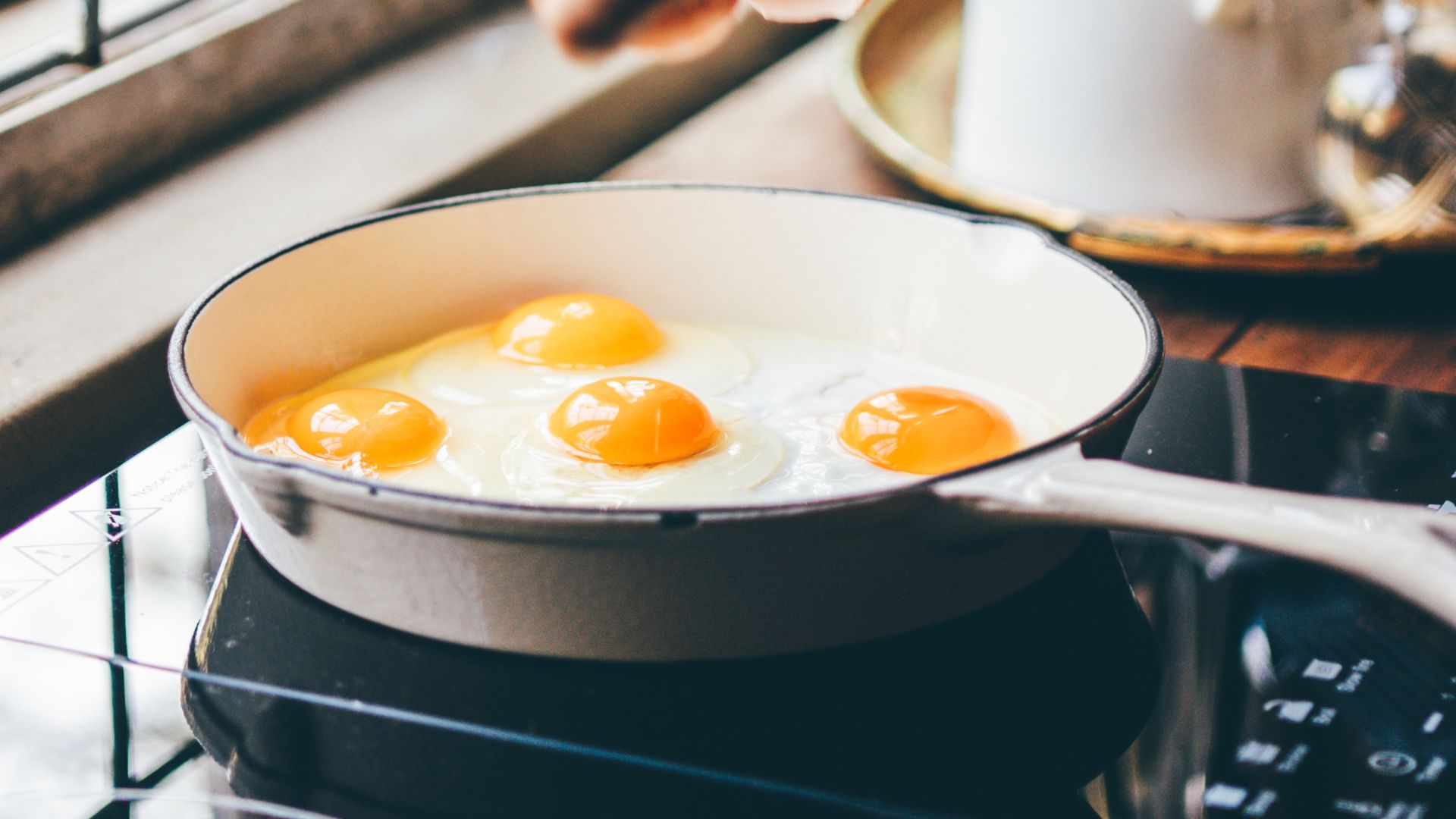
If a bacon sandwich is your go-to for breakfast, it's time to shake things up. Bacon is a processed meat high in saturated fat and salt, which have been linked to cardiovascular disease, high blood pressure, and even some cancers. While it's fine in moderation or once in a while, eating bacon every day may have an impact on your long-term health.
Switching out some of those bacon sandwiches for egg sandwiches could make all the difference. You could also try meat-free alternatives, which may still be processed but will be lower in saturated fat.
Baked, not fried
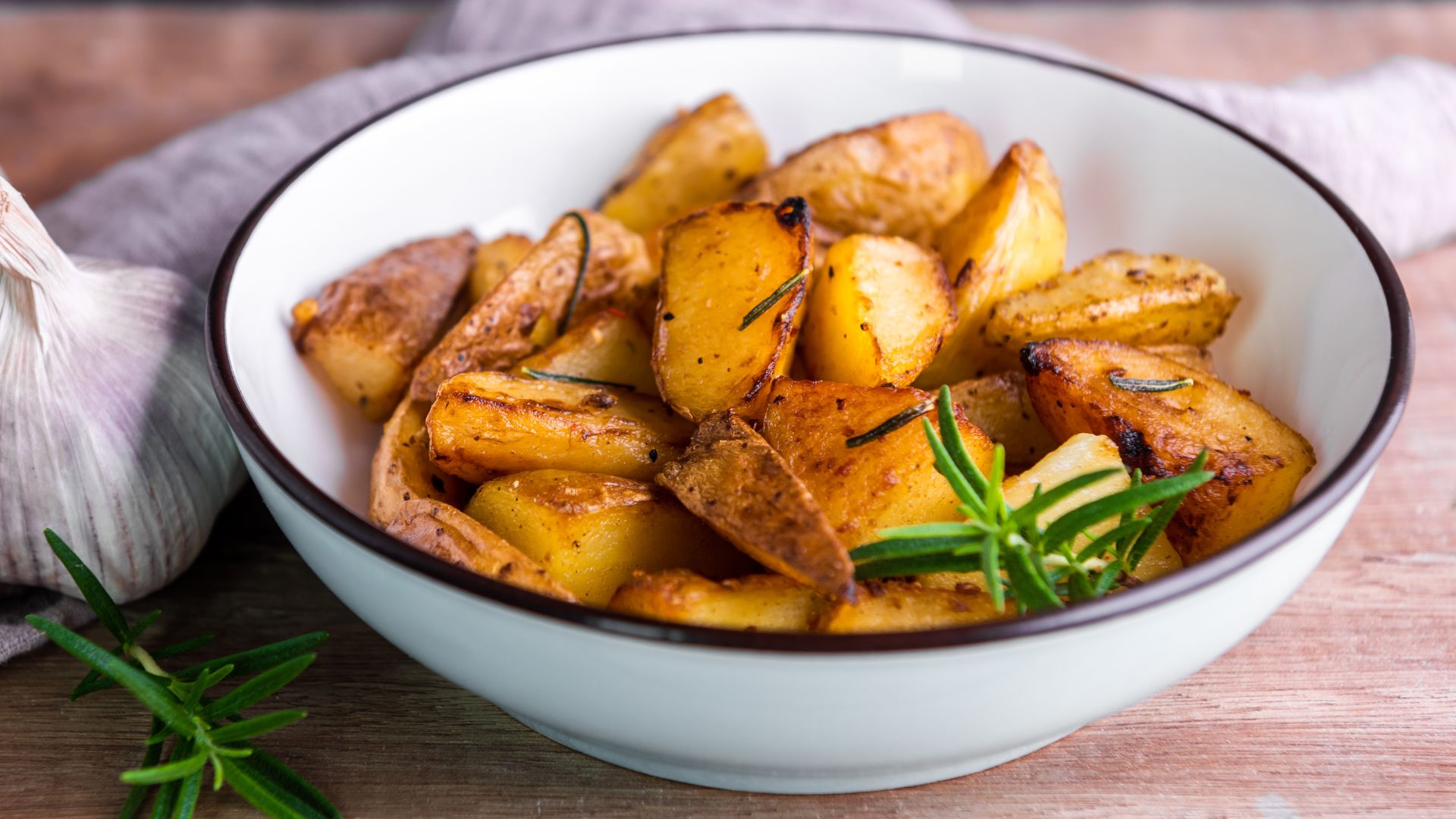
Baking uses hot air in an enclosed oven, while frying involves using oil in a pan, so it's no surprise that baking is the healthier option for most cooking.
Using an air fryer, however, may help you get the best of both worlds (and the best air fryers often have a baking setting too) as you can fry with little to no oil.
Raw nut butters, not processed
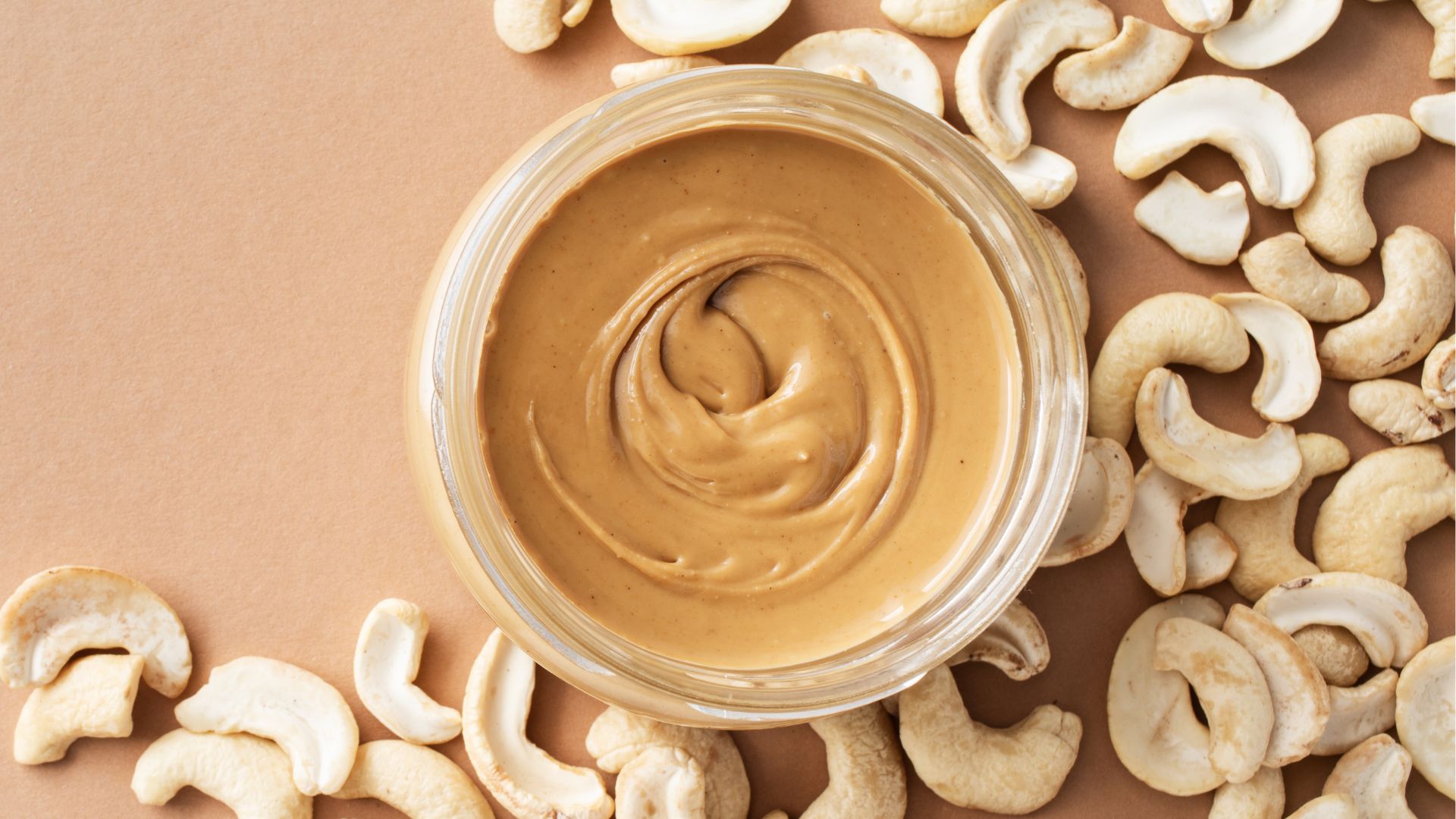
There's no denying that 'raw' nut butters will be more costly than the processed alternatives, but if you've got the money to spend, then it's always a good idea to opt for them. They use unroasted nuts, which preserve the natural enzymes and nutrients in the nuts, and their creation involves minimal processing.
They're also likely to taste better and be richer in protein as they contain fewer calories, sugar, salt, and artificial flavours.
Roasted chickpeas, not crisps
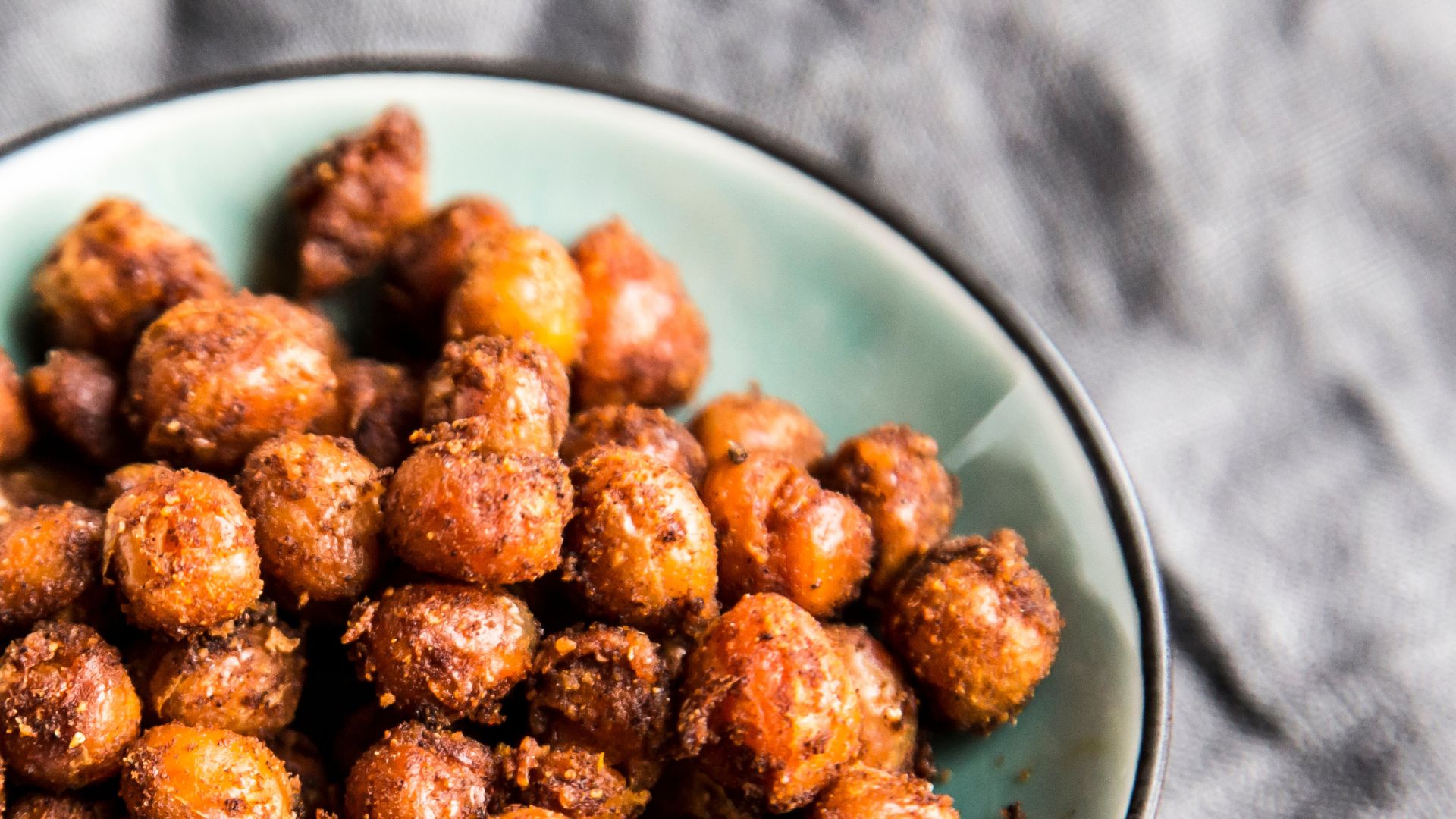
Popcorn is a great alternative to crisps, as are roasted chickpeas. You can also make these at home very cheaply and easily with a little olive oil, paprika, and time in the oven.
Chickpeas are also naturally rich in fibre and protein, boosting digestive health and helping you feel fuller for longer, making them a worthwhile snack.
Sparkling water, not fizzy drinks
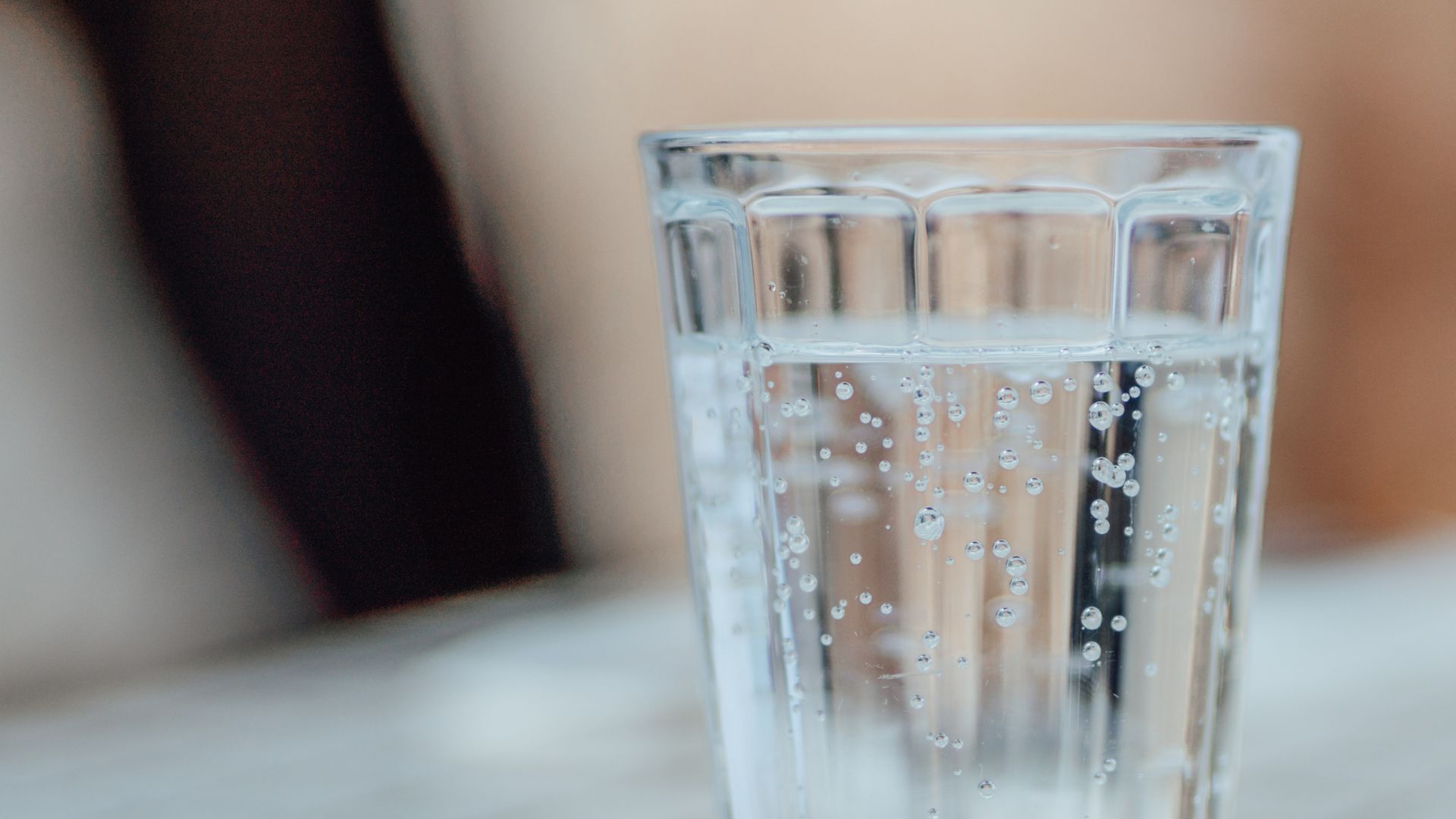
Sometimes there's nothing like a Diet Coke to quench your thirst, but oftentimes, it would be better to opt for a drink lower in additives. Sparkling water can be just that, as it's simply water with added gas.
Sparkling water is sugar-free, zero-calorie, and may even come with additional minerals like potassium.
Avocado, not butter
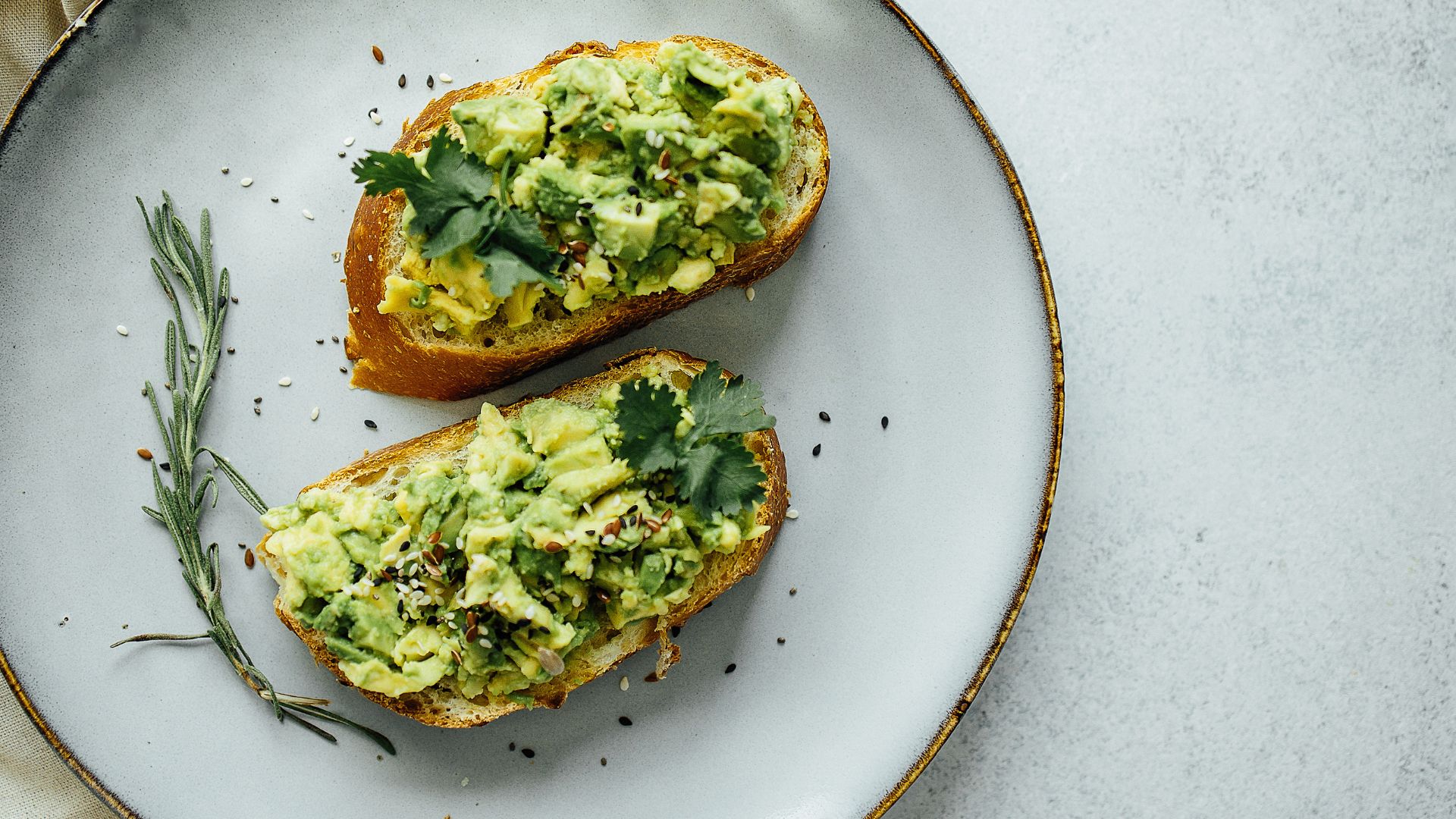
Butter is the go-to spread, but it can be high in saturated fat and cholesterol, which, when eaten long-term or in high quantities, can have adverse health effects. Avocado, while more expensive, can be a useful (and nutritious) alternative.
Avocado is rich in monounsaturated fats, potassium, fibre, and antioxidants. It's also lower in calories and has active benefits for heart health.
Banana, not sugar
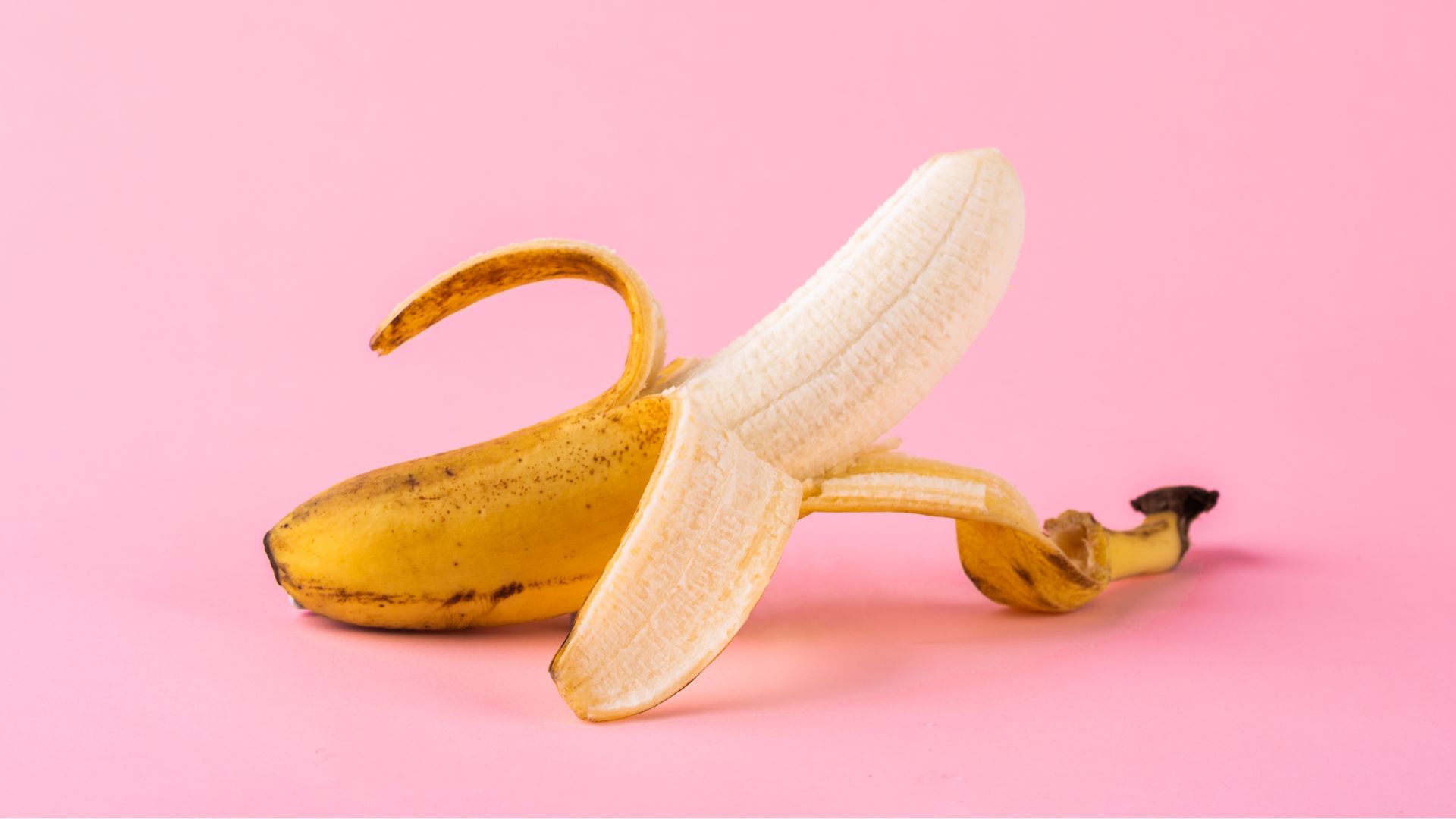
Keen bakers will know this one already. To lower the sugar content of many baked goods, some people use bananas. The fruit offers moisture, tenderness, and a sweet finish but is significantly lower in calories.
To swap them out like for like, use half the amount of mashed, ripe banana as you would sugar.
Black coffee, not sugary drinks
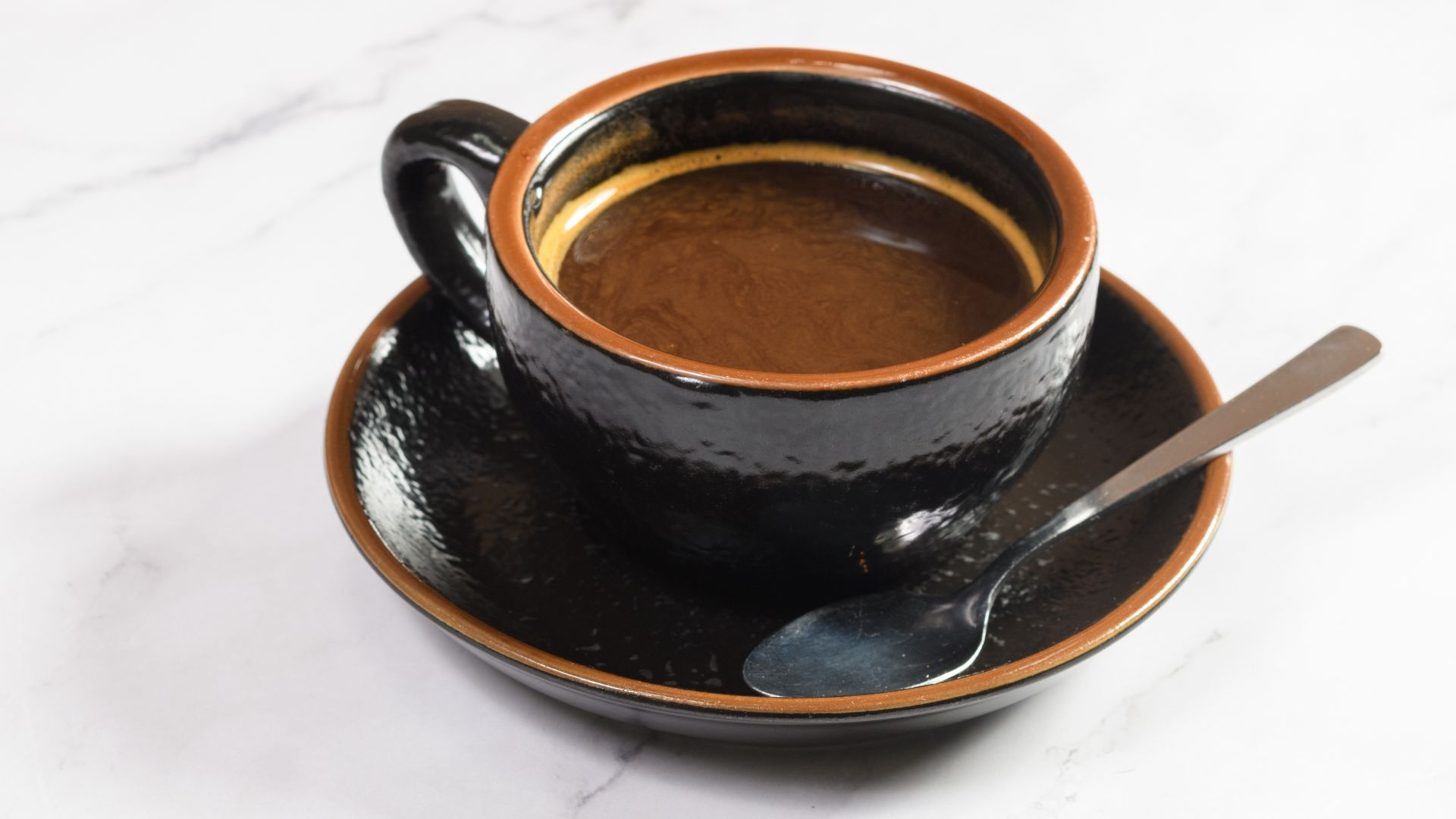
There's nothing wrong with a Frappuccino or mocha every now and then, but if your go-to coffee is one of these sugary drinks, then it's worth thinking about alternatives.
Black coffee or coffee with milk is a lower-calorie alternative and may result in fewer energy crashes in the late morning. As a sweetener, use honey instead of sugar.
Greek yoghurt, not ice cream
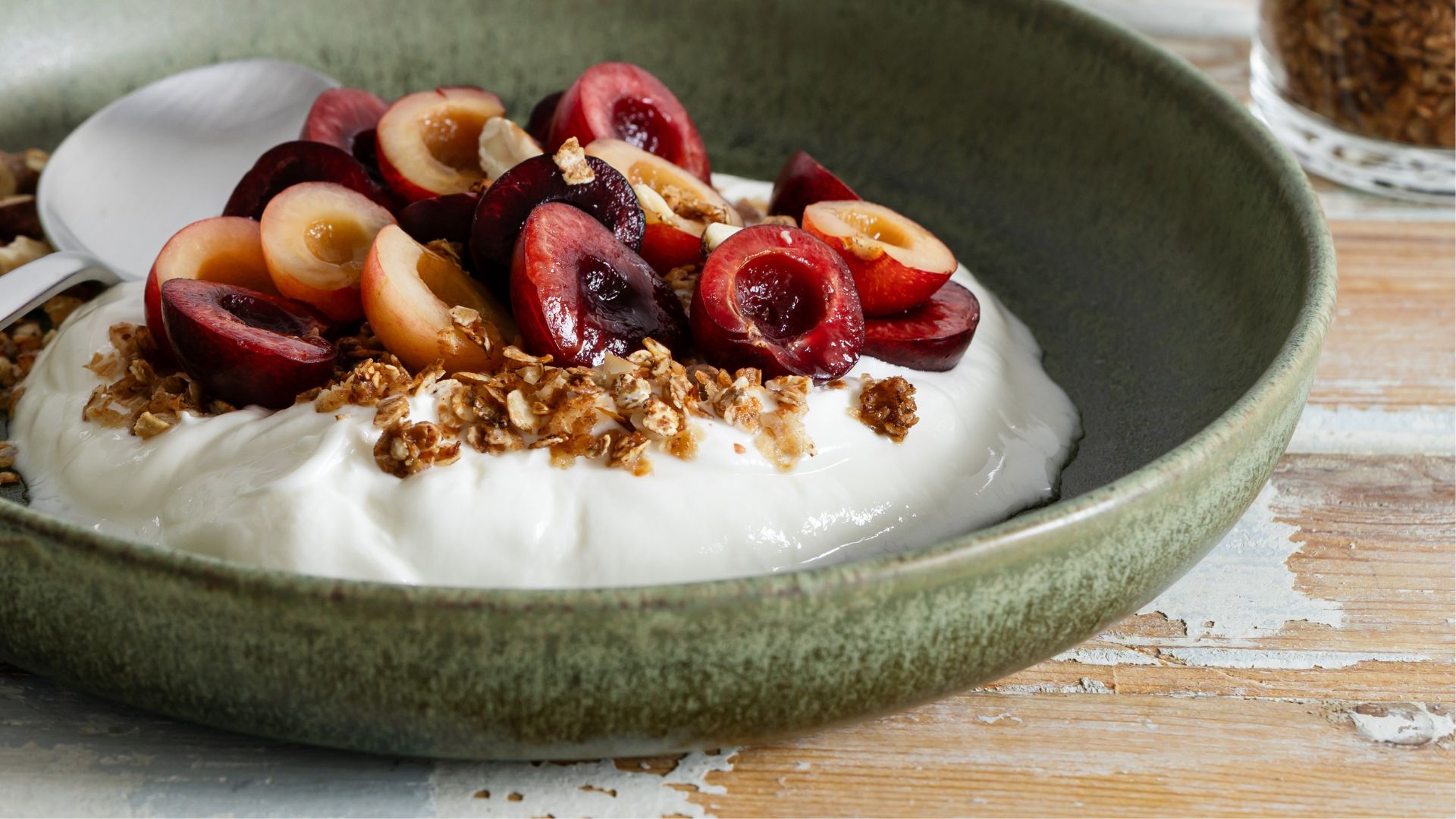
If ice cream is your favourite dessert and you're finding yourself reaching for the freezer every day, then it's worth considering an alternative. Greek yoghurt could be it.
The yoghurt is richer in protein, calcium, and gut-healthy probiotics, while being lower in calories and fat.
Whole wheat, not white flour
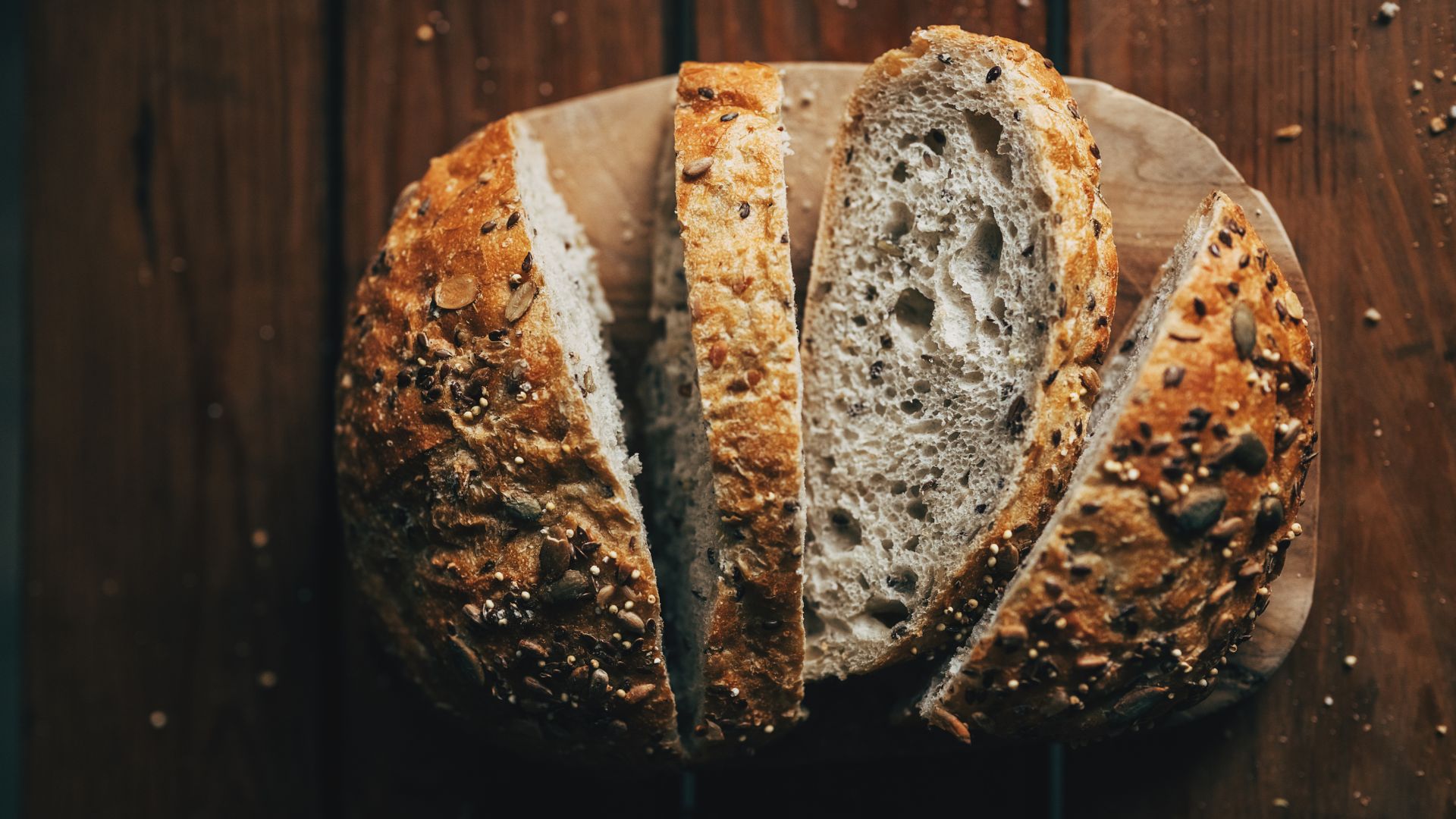
Whole wheat flour is less processed than white flour and as it contains the entire wheat kernel, it also offers more fibre, B vitamins, and minerals. White flour, on the other hand, is lighter in colour, softer, and has a much lower nutritional content.
Whole wheat can also contribute to better digestive health, weight management, and a reduced risk of disease later in life.
Frozen berries, not sweets
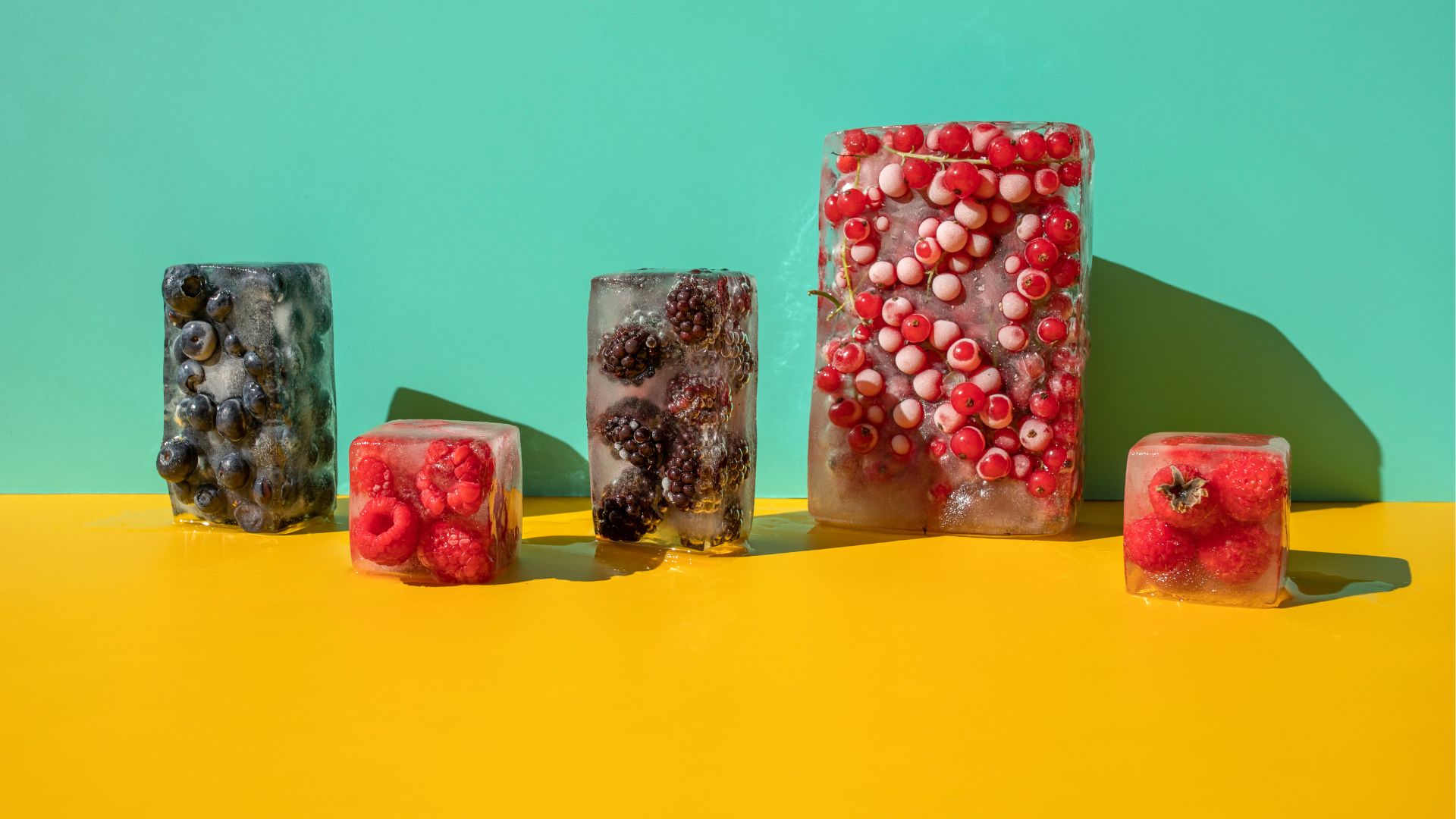
Another good alternative to sweets is frozen strawberries, raspberries, and blueberries. As they are frozen, they are available all year round and have a natural sweetness that can replace processed sweet foods sometimes.
Add them to frozen yogurt in a blender and you have yourself a fruity ice cream alternative.
Avocado, not mayonnaise
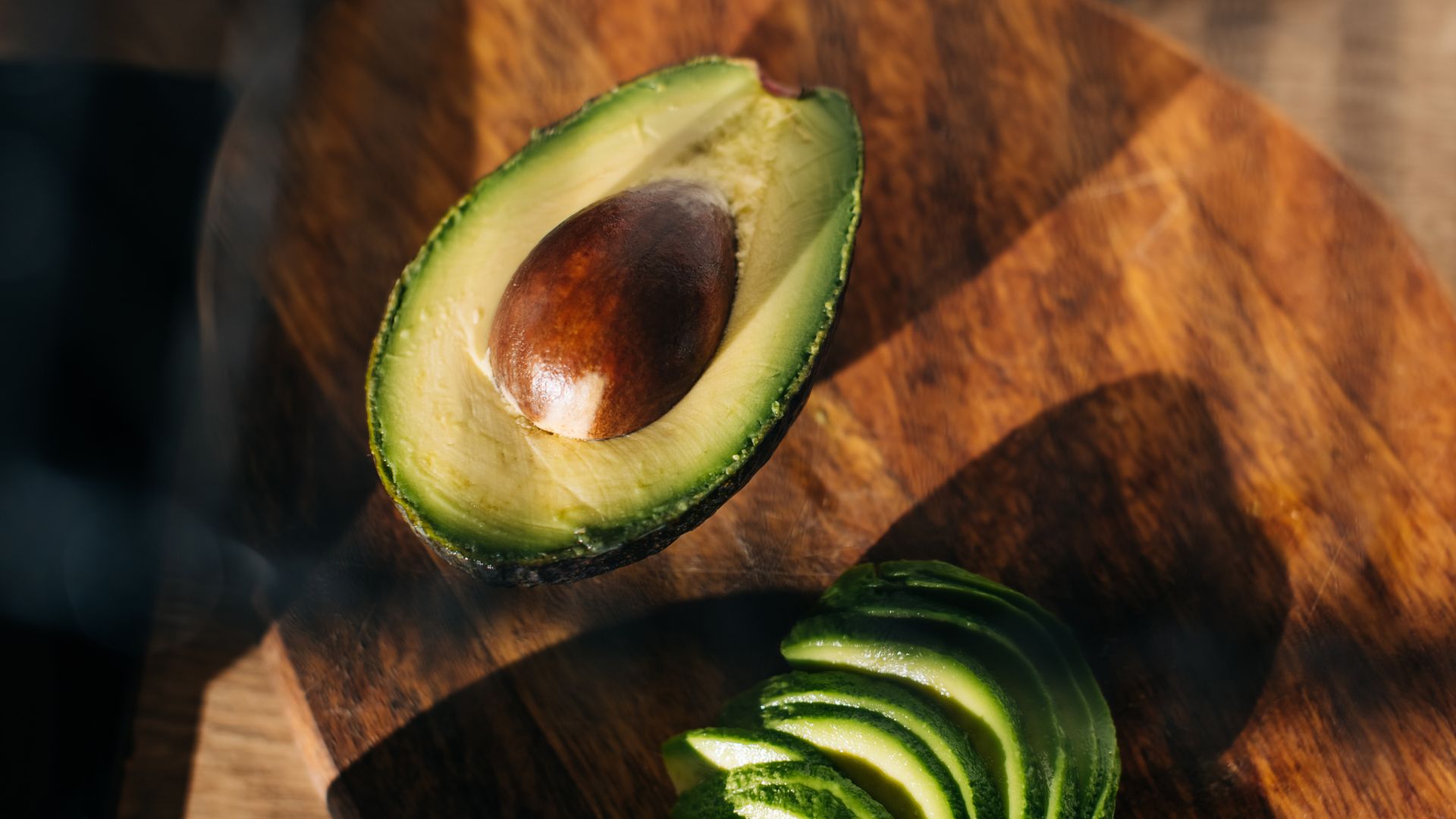
Just as avocado can be a good alternative to butter, it can be a good alternative to mayonnaise, which is often ultra-processed (unless made fresh).
Avocado contains vitamins, minerals like potassium and magnesium, fibre, and plenty of healthy fats with fewer calories and less saturated fat per serving.
Roasted vegetables, not chips
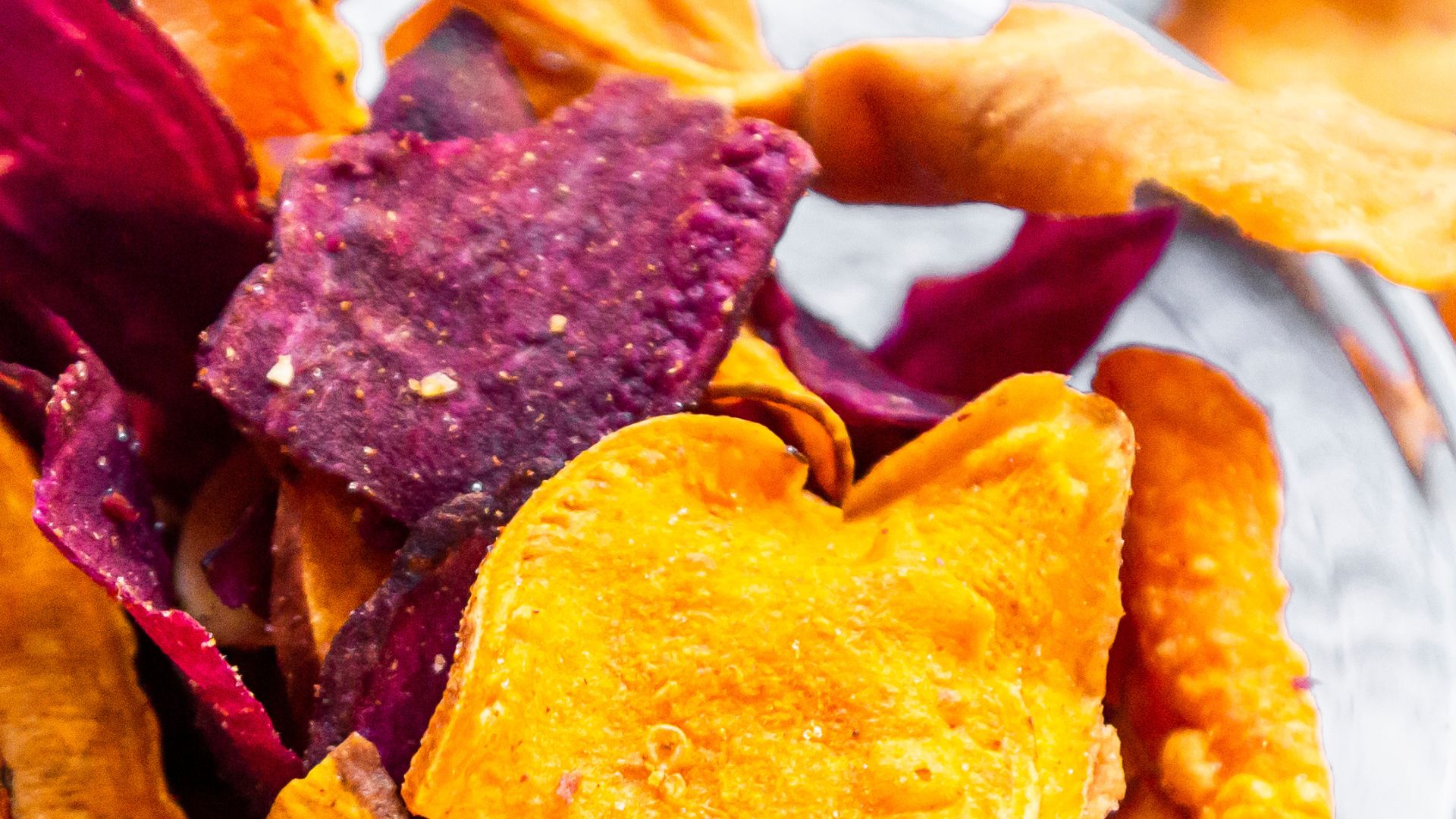
Roasted chickpeas and popcorn are two great alternatives to crisps for snacking, but for even more nutritional value, you could make your own roasted vegetable crisps.
When made at home, they contain fewer artificial ingredients, sugar, salt, and saturated fats. When bought in packets at the supermarket, however, they can be just as high in these ingredients as regular crisps.
Smoothies, not juice
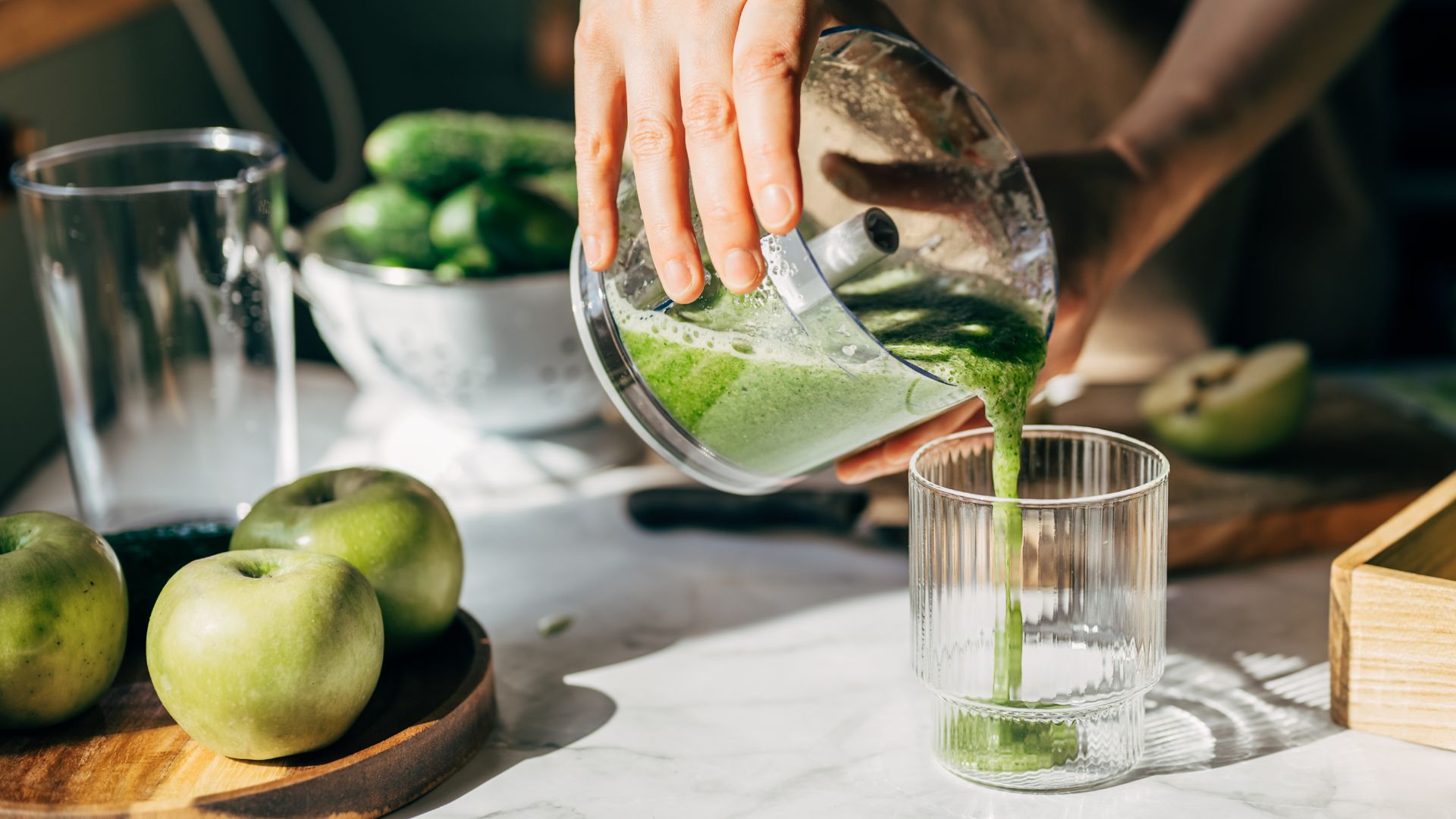
There's nothing wrong with juice, especially when it's made with fresh and unprocessed fruits or vegetables with no added sugar, but by taking away the pulp, you take away the fibre in most juices.
Smoothies complete with all the roughage of the fruit can be a better option for digestive health. They are also easier to make as you just need a blender.
Turkey, not pork
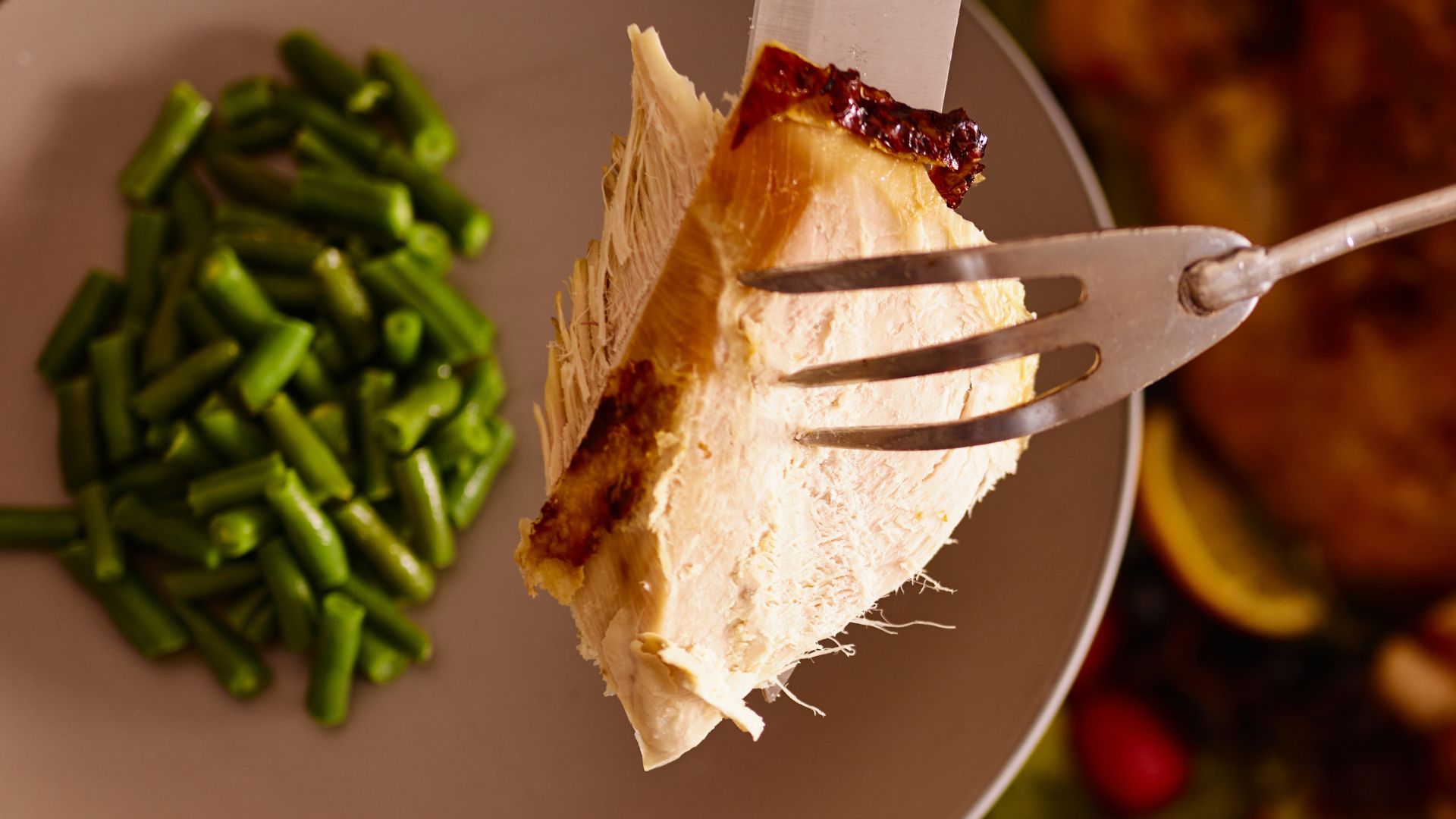
Turkey isn't just for Christmas - this lean bird meat is a suitable option all year round and makes for a great alternative to pork, which tends to be richer in saturated fat.
Turkey is rich in protein, which promotes fullness, as well as B vitamins and minerals like zinc. It's also low in fat.
Grilled mushrooms, not meat burgers
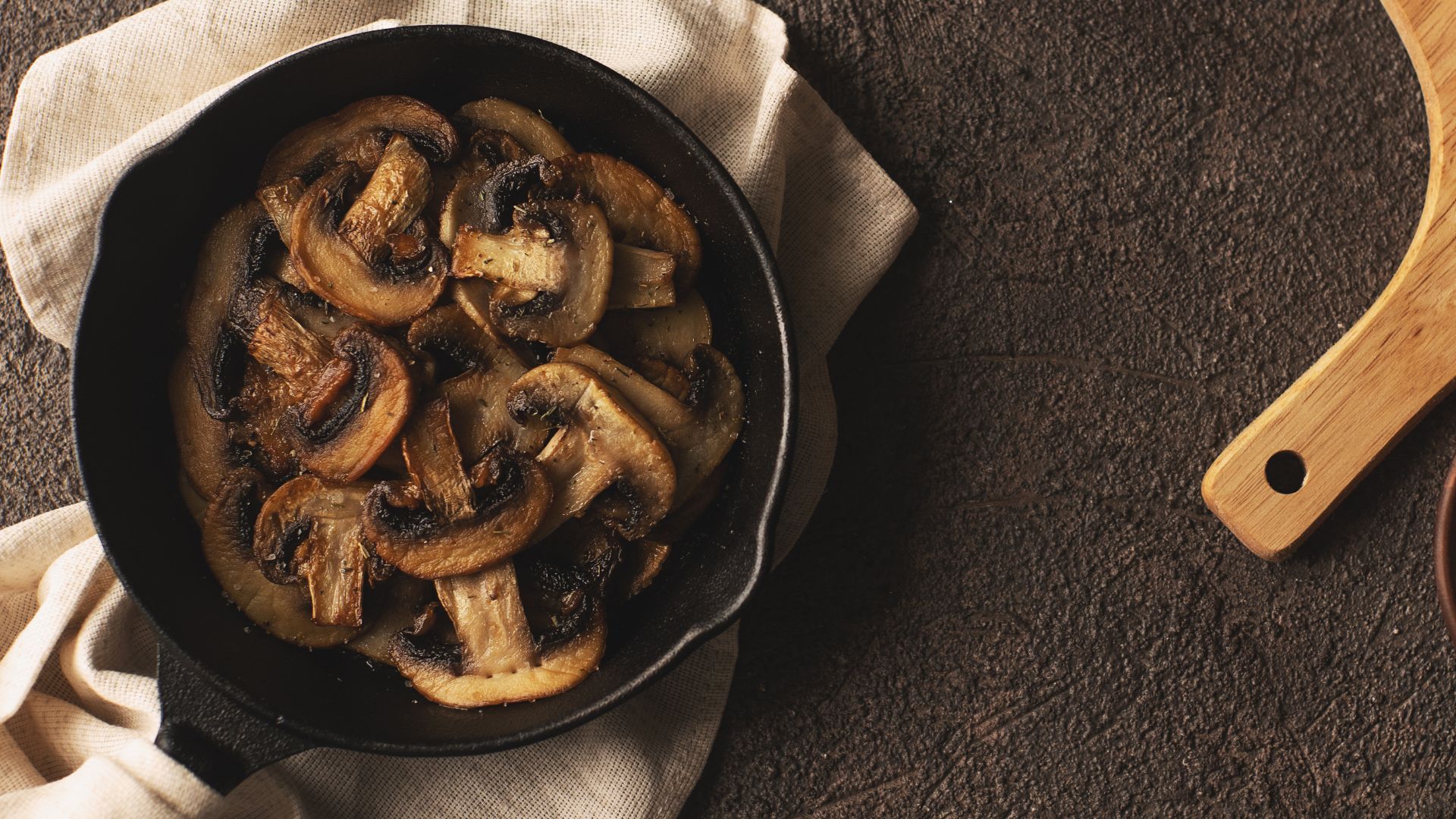
Once in a while, why not try something new? Swapping out a regular beef burger patty for a mushroom burger could be a good way to boost your antioxidant, vitamin D, and potassium levels while indulging in a meal.
The fibre in mushrooms is also known to have particular health benefits as it helps manage cholesterol and blood sugar levels. They will also be lower in salt compared to traditional burgers.
Seeds, not breadcrumbs
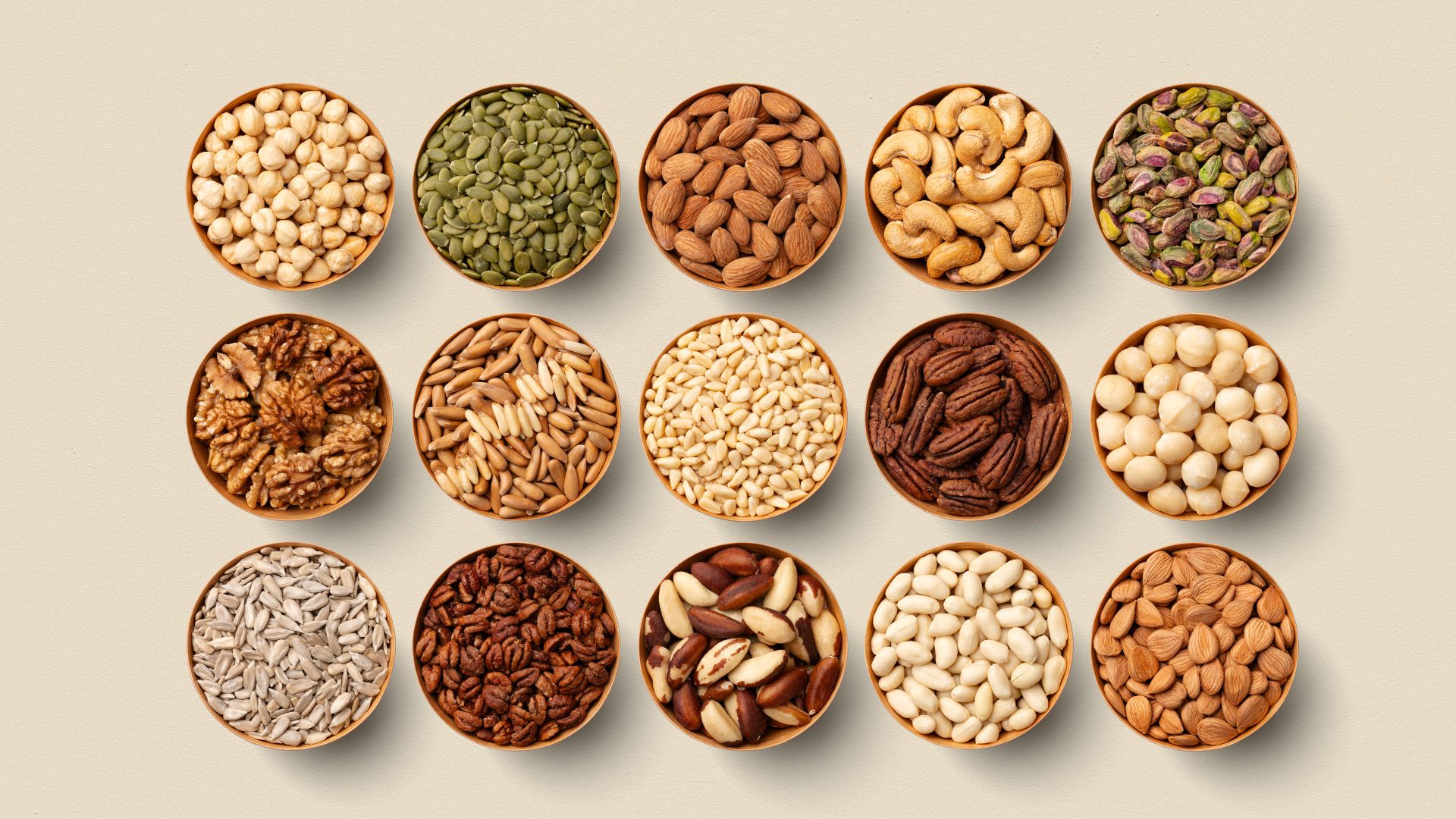
Seeds are rich in fibre and healthy fats. They also blend very easily, making them a good alternative to breadcrumbs as a crispy coating on meats and vegetables, and croutons in salad.
You'll still need to add egg and perhaps flour to the mixture to get the seeds to coat, but you'll benefit from more nutrients at the end.
Hard boiled eggs, not protein bars
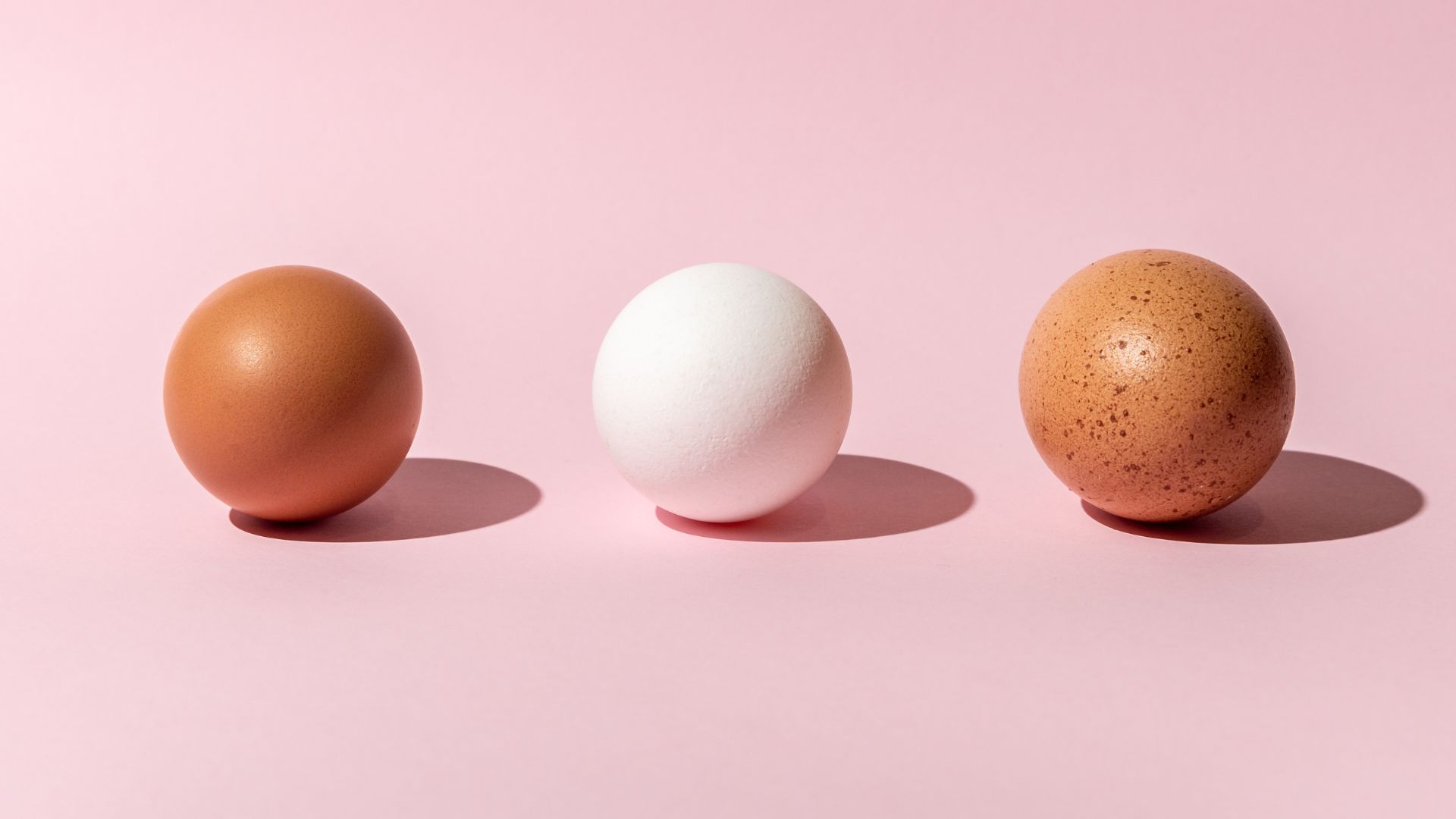
Protein bars might be a one-stop shop for a protein-rich snack, but you'll also get ultra-processed ingredients and maybe added sugar to boot. It's not as tasty, but two boiled eggs have about the same amount of protein as a regular bar (12g of protein).
They are also much cheaper and versatile, given all the different ways you can have your eggs.
Quinoa, not white rice
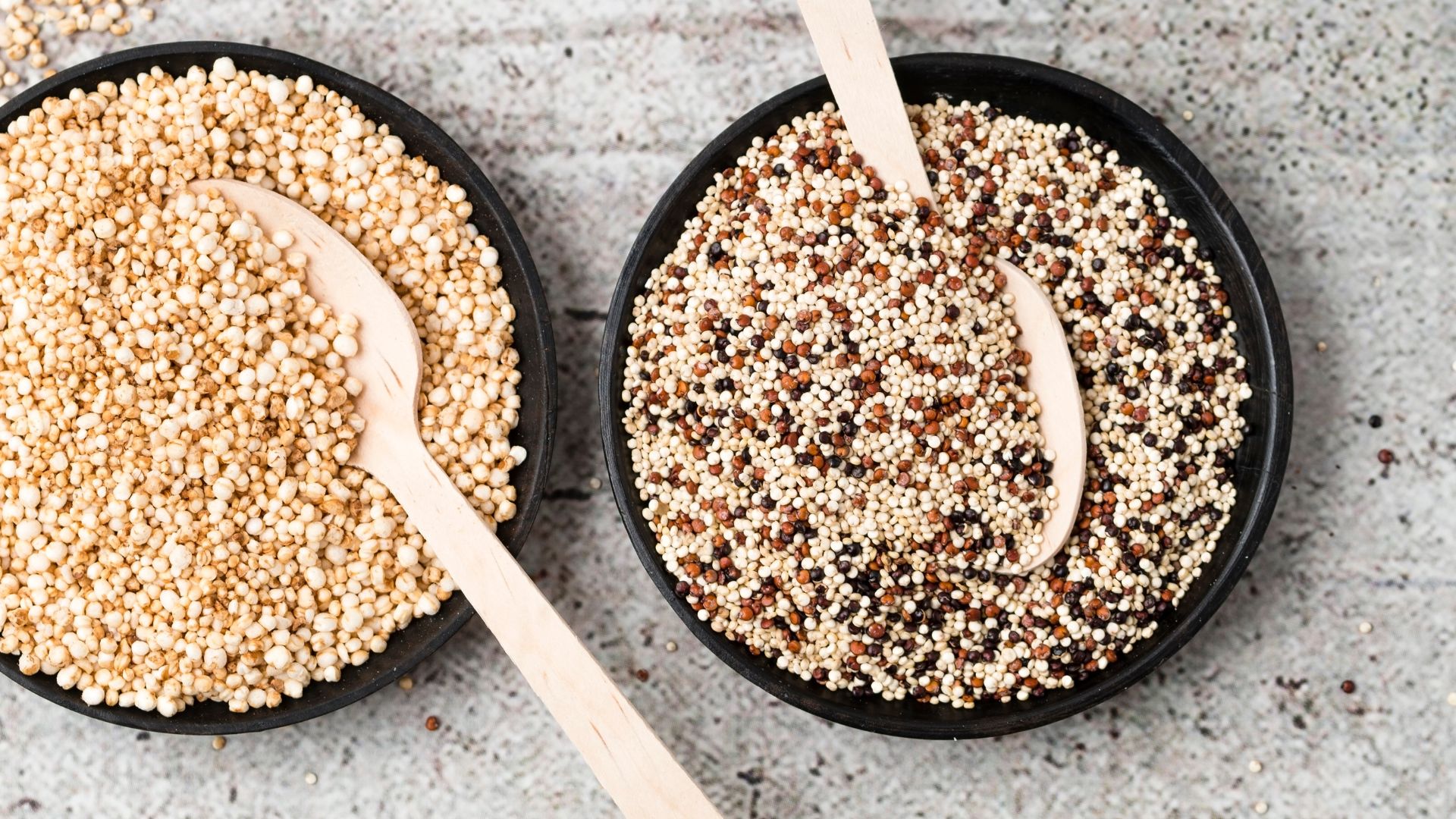
Quinoa can be a great alternative to rice if you're looking to spice up your dinners and add a few more nutrients to your diet. It's a complete protein and rich in fibre, antioxidants, magnesium, and folate.
It can also support a healthy heart as it can help lower cholesterol, promote gut health, and help with weight management.
Apple sauce, not cooking oil
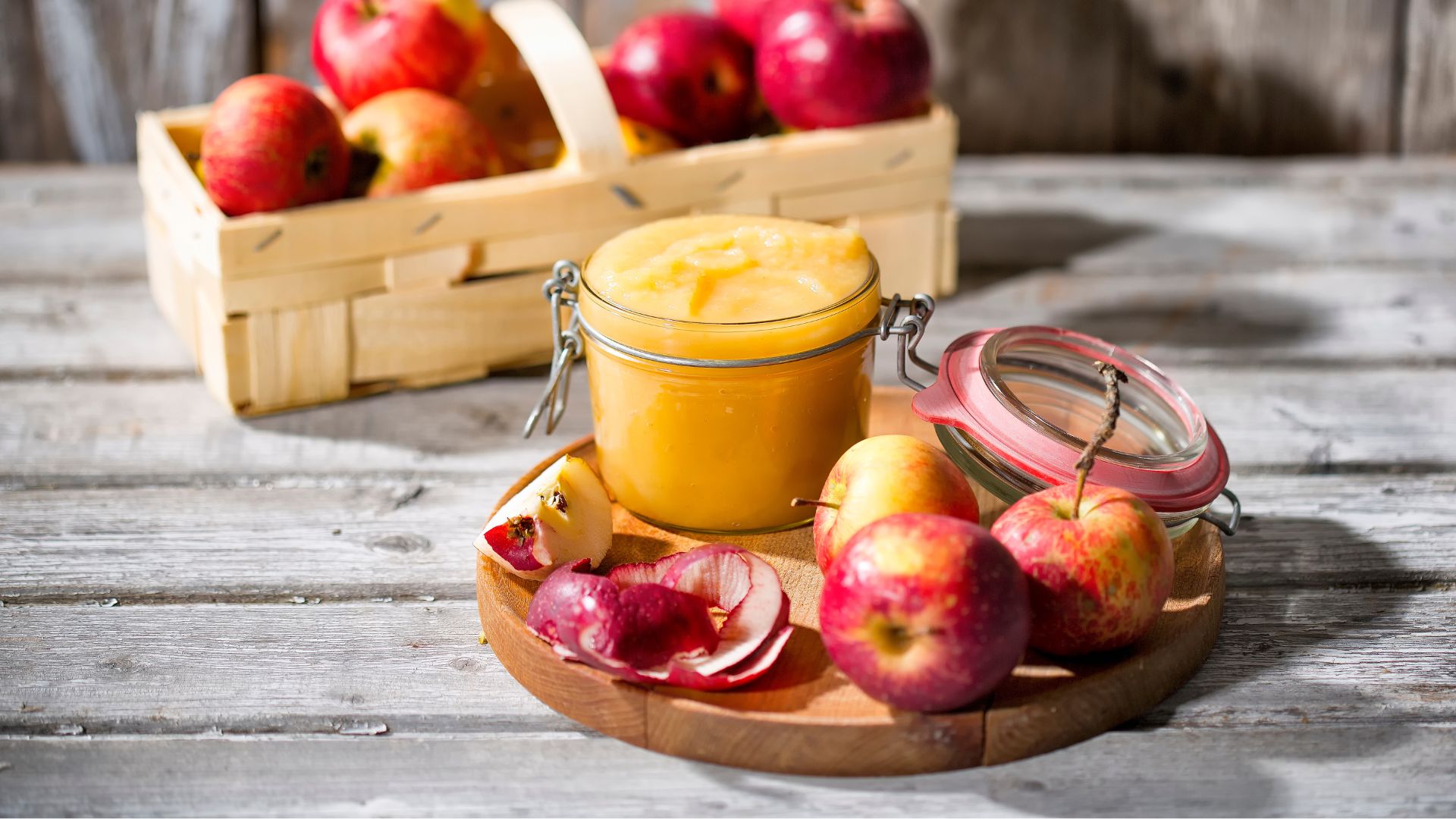
Apple sauce can be a healthy swap for cooking oil for keen bakers looking to make healthier sweet treats at home.
Just like oil or butter, apple sauce adds moisture, smoothness, and a delicate flavour, but it contributes more to the recipe with nutrients like fibre and no artificial sweeteners, provided you make the sauce yourself.
Brown rice, not white rice
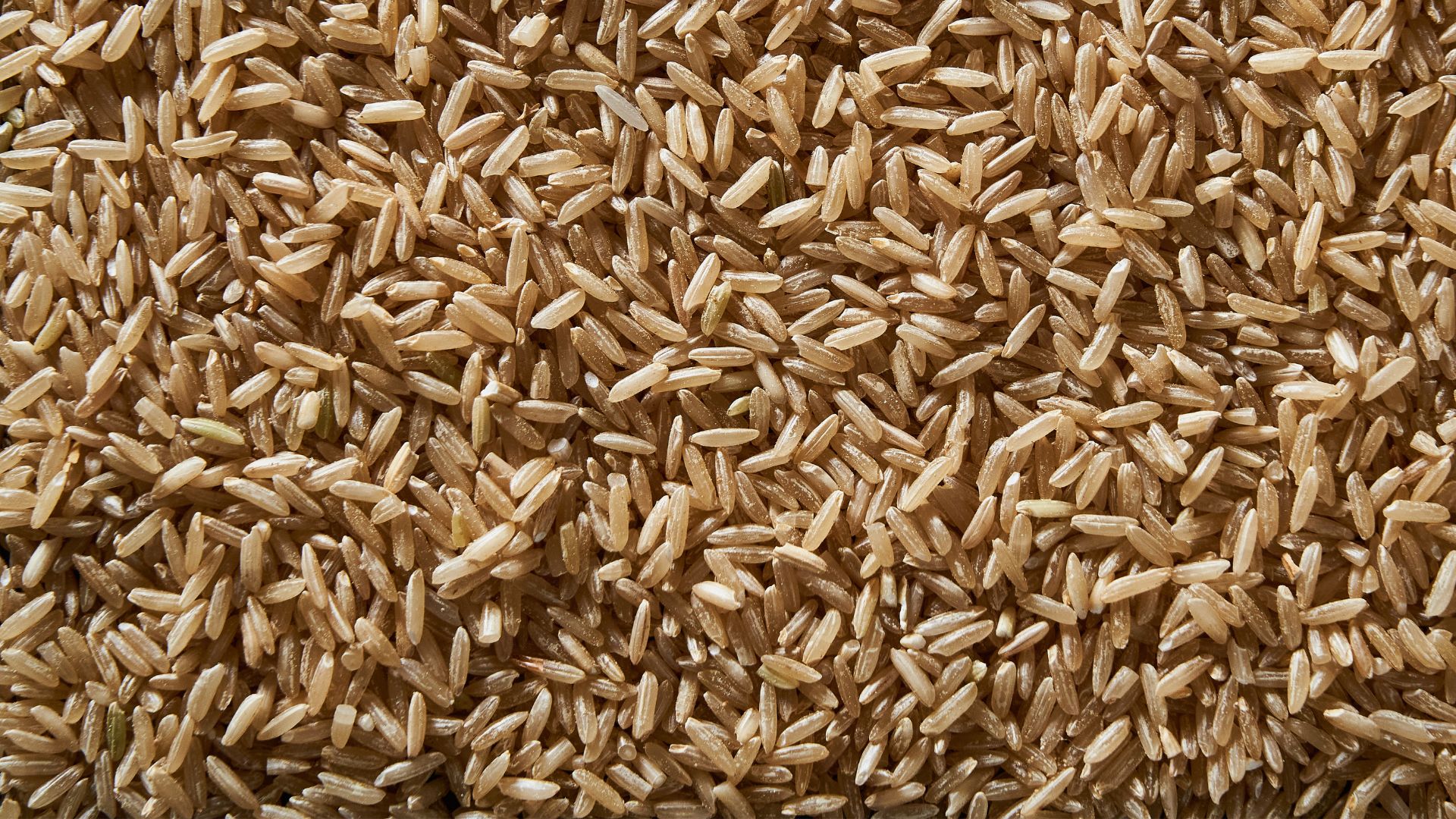
Brown rice is rich in fibre, vitamins, and minerals as it keeps the bran and germ of the wheat, which means it's a more nutrient-dense choice.
While white rice isn't the harm it's often made out to be and can be a better option for those with digestive issues, it is more processed and contains fewer nutrients.
Sourdough, not white bread
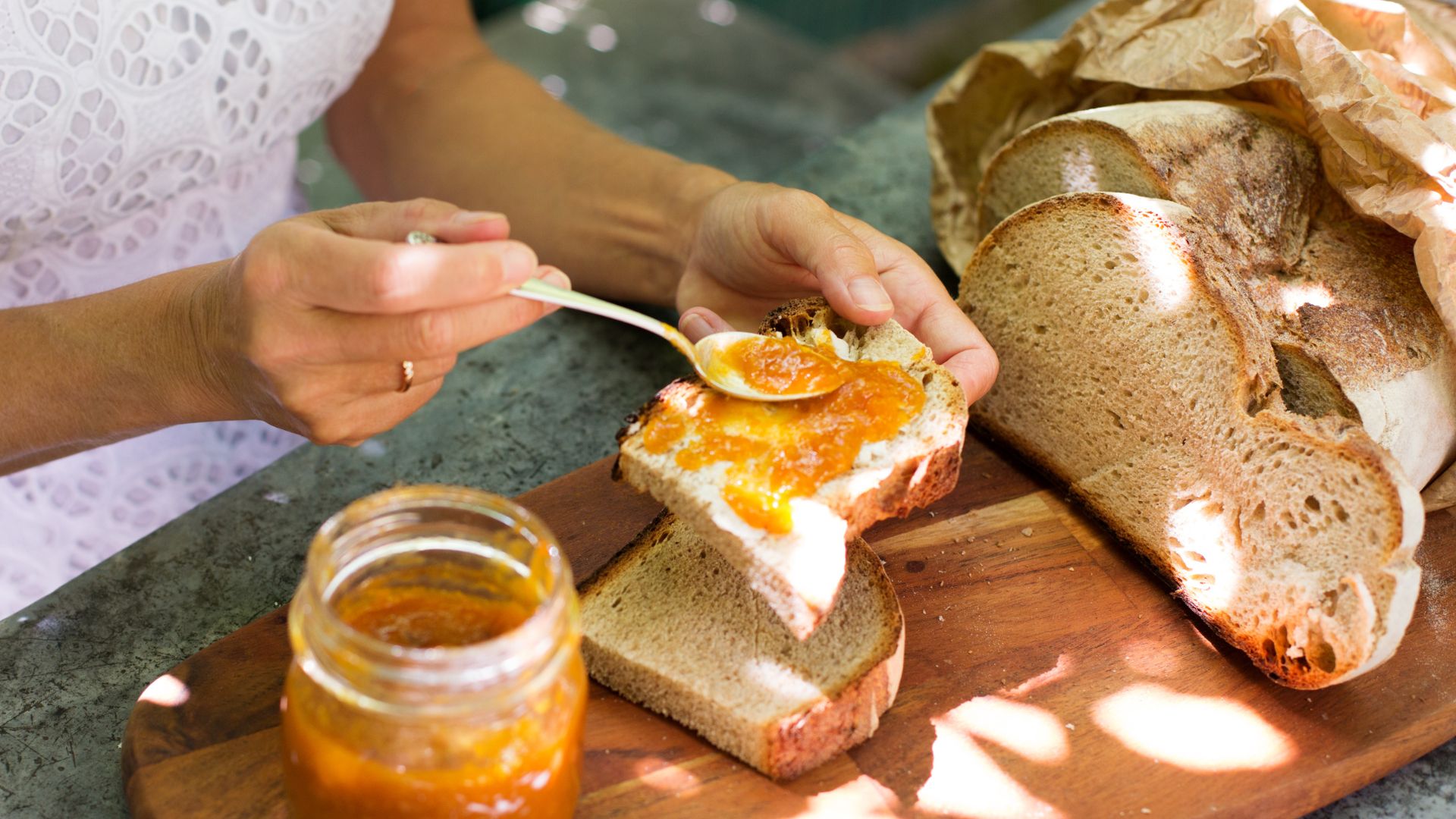
Sourdough bread is generally thought to be healthier than white bread as it's fermented for longer. This makes it more digestible and richer in probiotics and key nutrients.
White bread is often more processed and lacks the probiotics that sourdough bread has.
Oatcakes, not biscuits
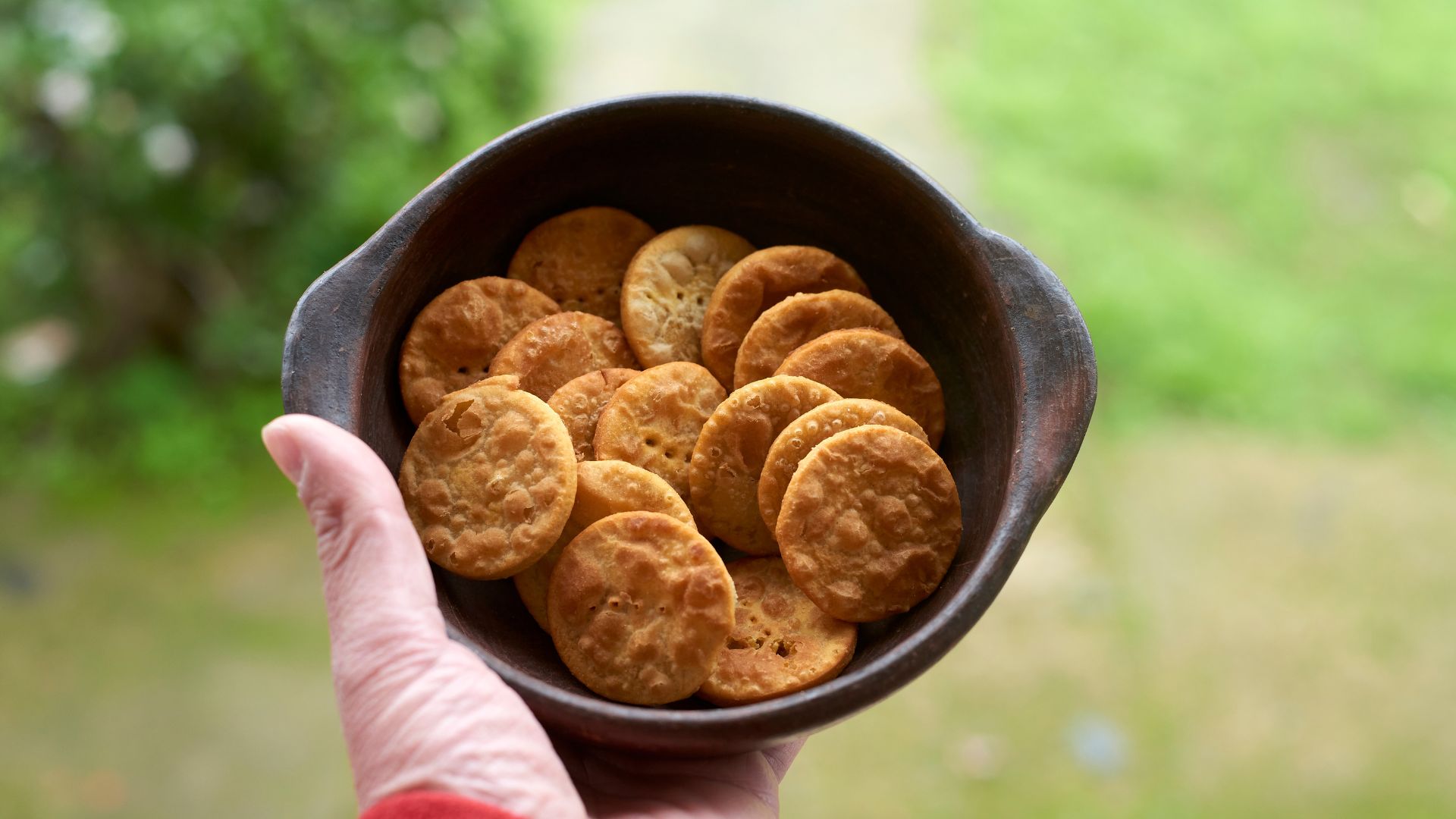
Oatcakes are high in fibre and have a nutty, savoury flavour. While they are normally eaten with cheese and savoury condiments, you can get sweet varieties (or make your own) that make them a good alternative to ultra-processed baked goods.
When made from scratch or with minimal ingredients, oatcakes tend to be healthier, richer in fibre, and lower in calories.
32. Lighter cheese, not full-fat
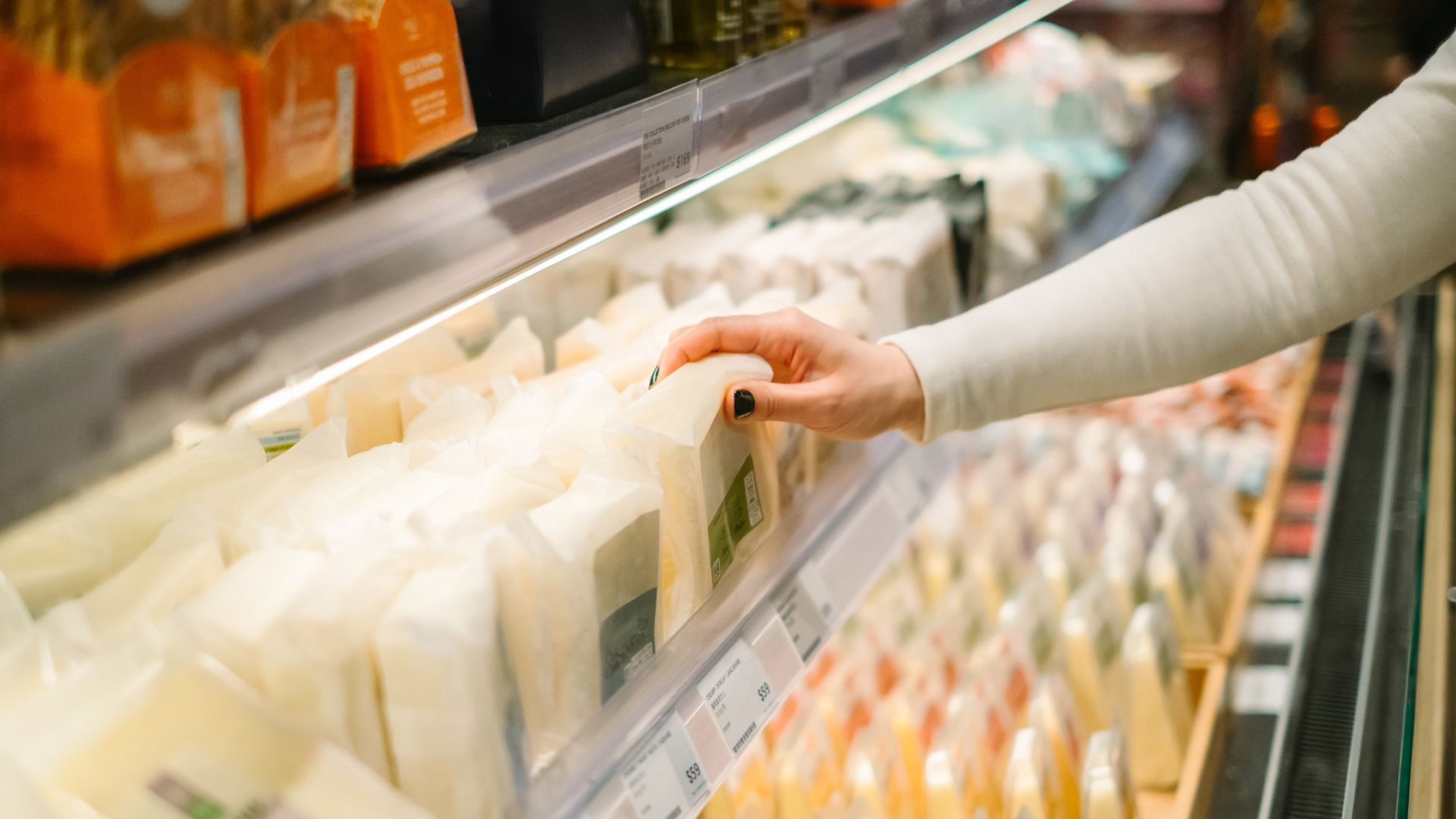
While full-fat cheese may taste better and could be less processed than lighter varieties, depending on how it's made, lighter cheese often has an equal amount of protein and nutrients, without as much saturated fat or calories.
It might not be a swap you want to make all the time, but every now and then could make a small difference.

Grace Walsh is woman&home's Health Channel Editor, working across the areas of fitness, nutrition, sleep, mental health, relationships, and sex. She is also a qualified fitness instructor.
A digital journalist with over seven years experience as a writer and editor for UK publications, Grace has covered (almost) everything in the world of health and wellbeing with bylines in Cosmopolitan, Red, The i Paper, GoodtoKnow, and more.
You must confirm your public display name before commenting
Please logout and then login again, you will then be prompted to enter your display name.